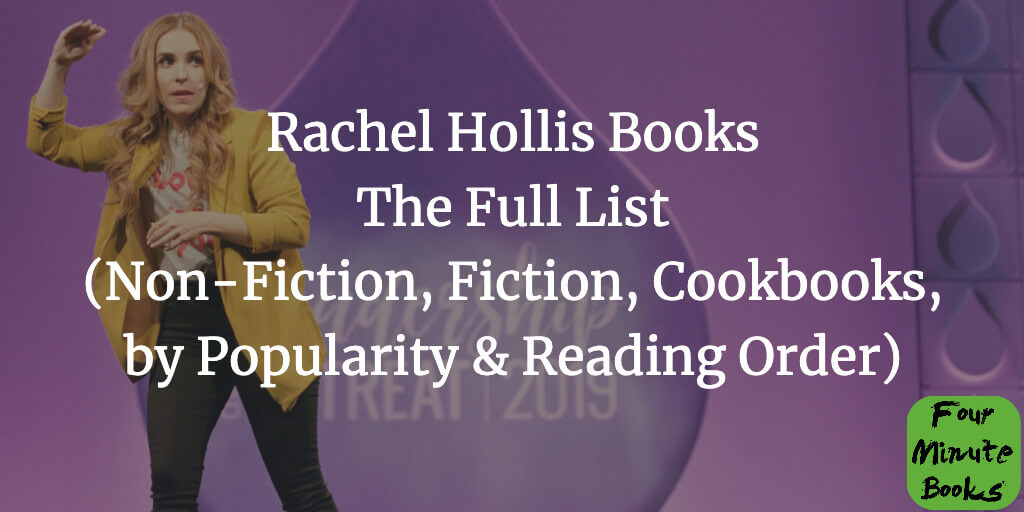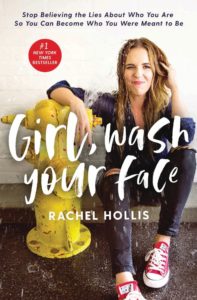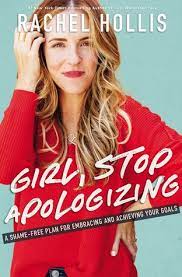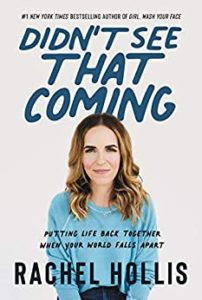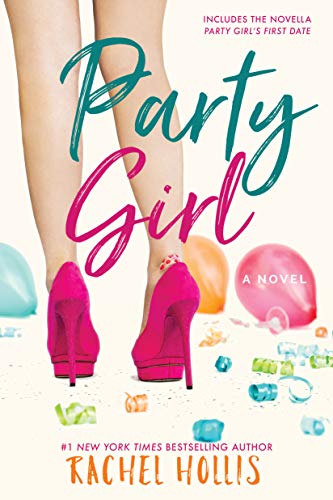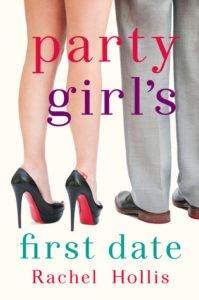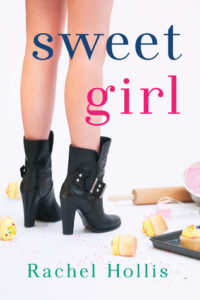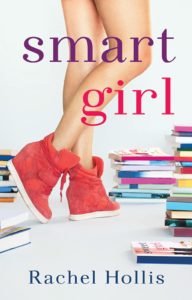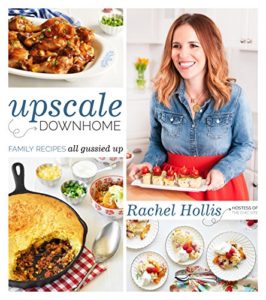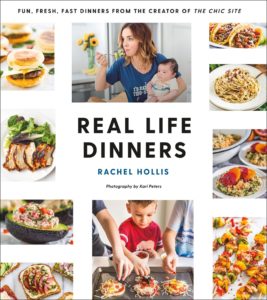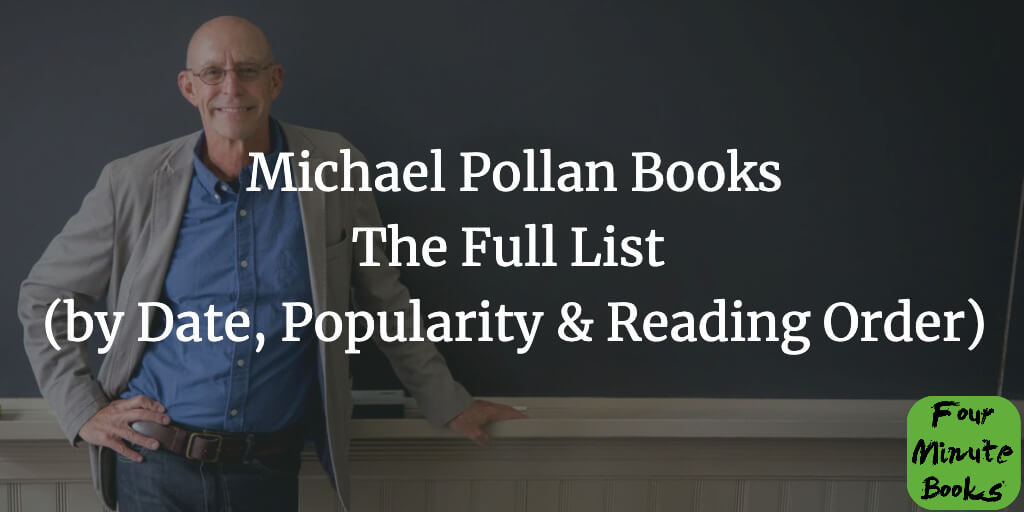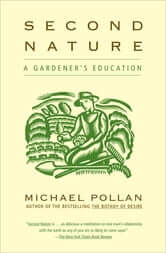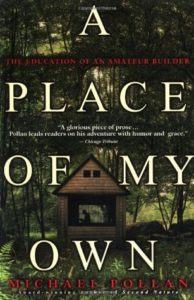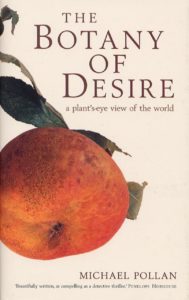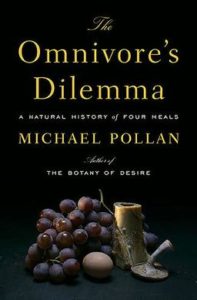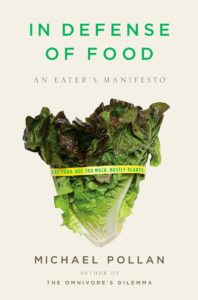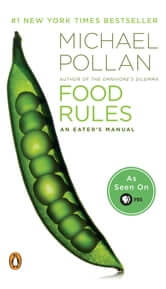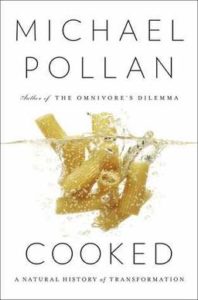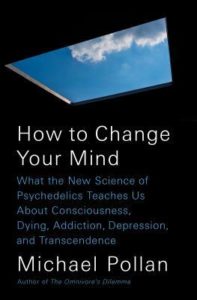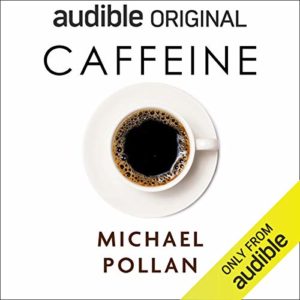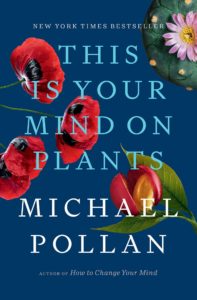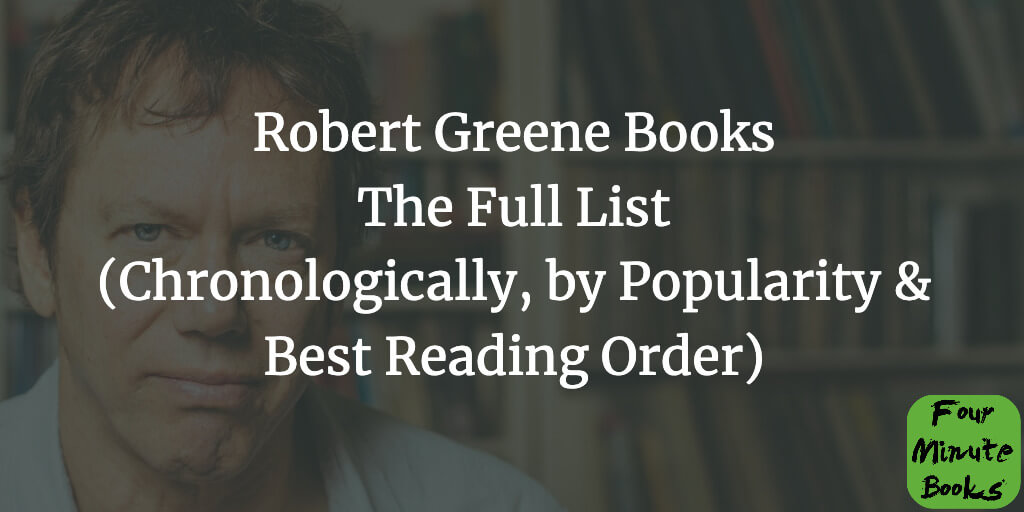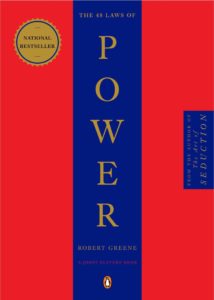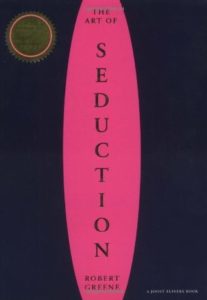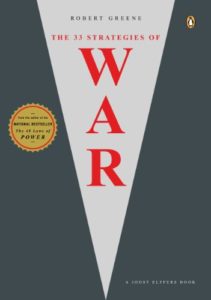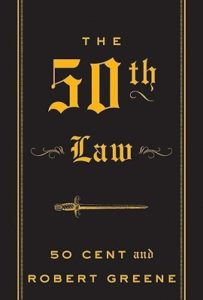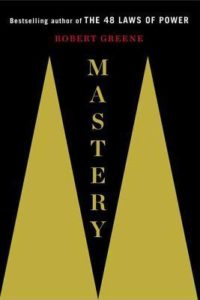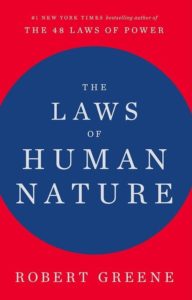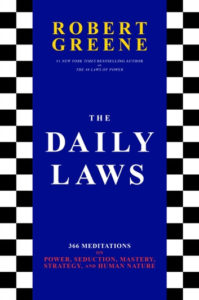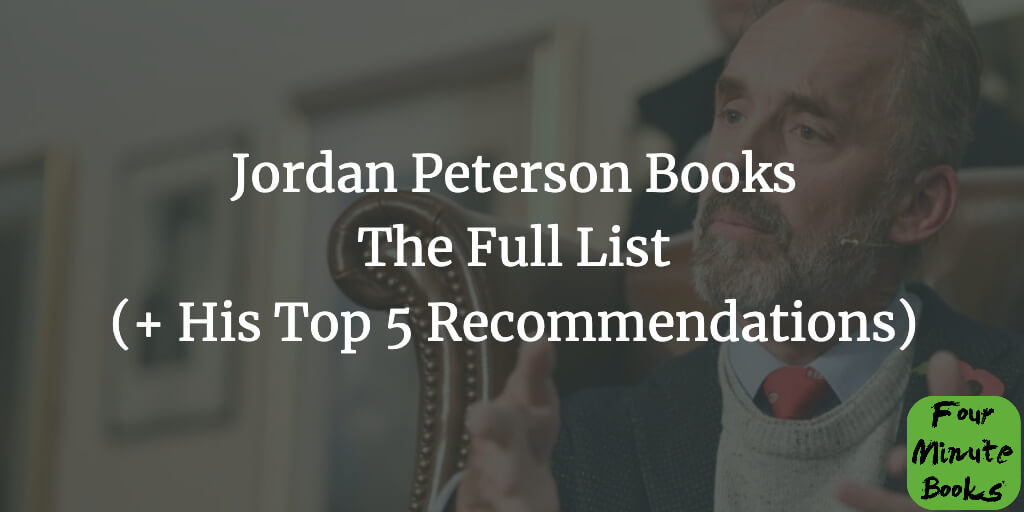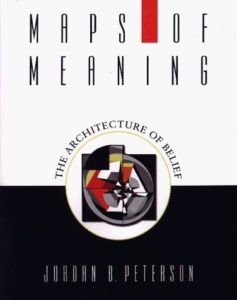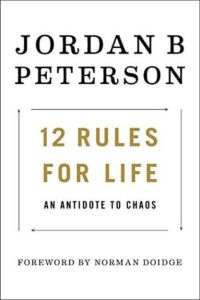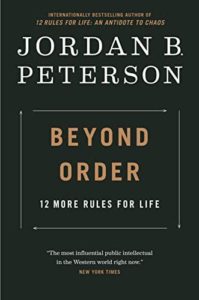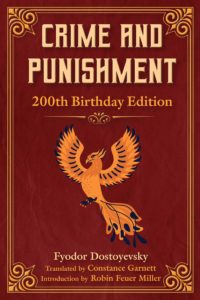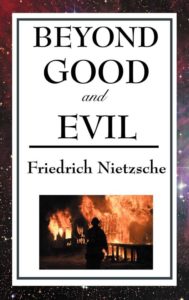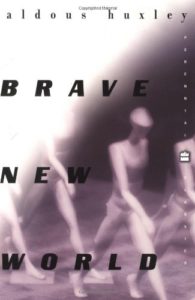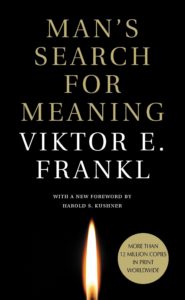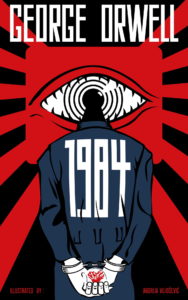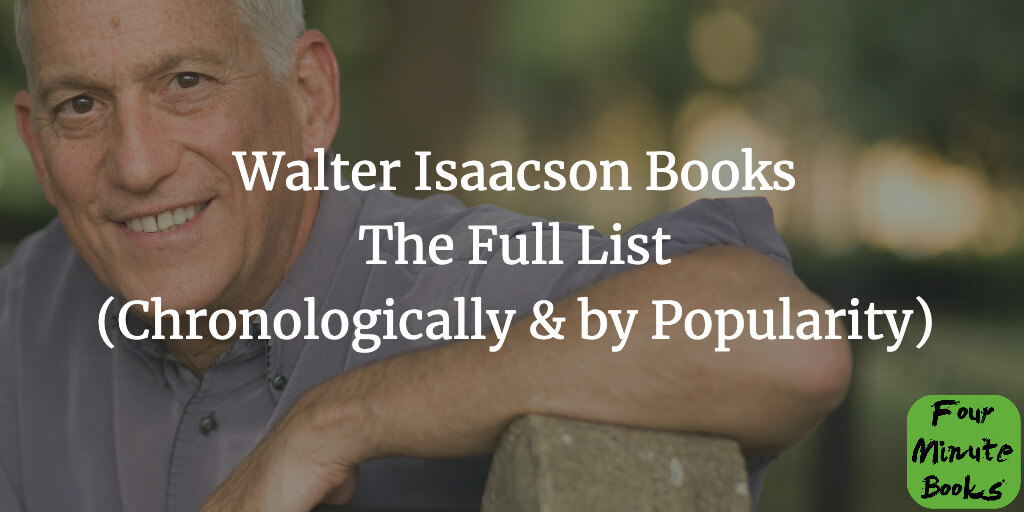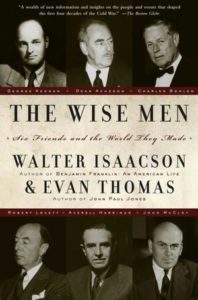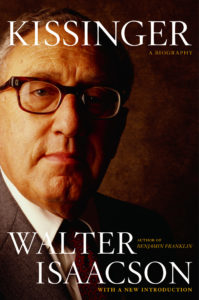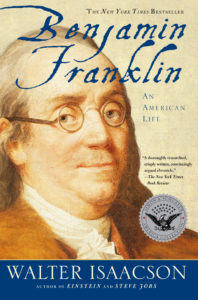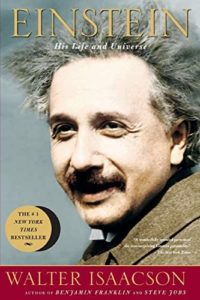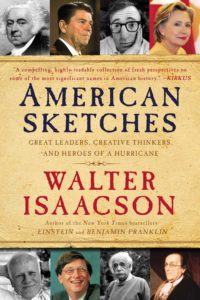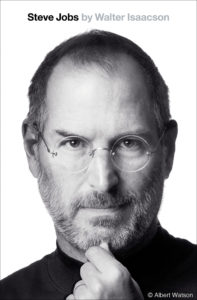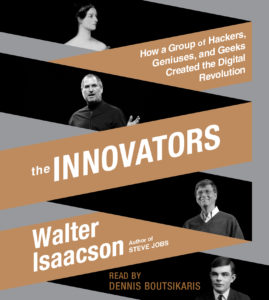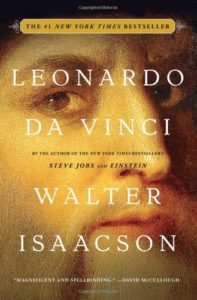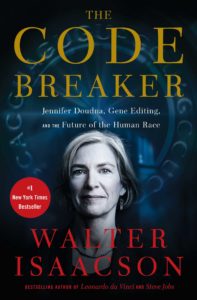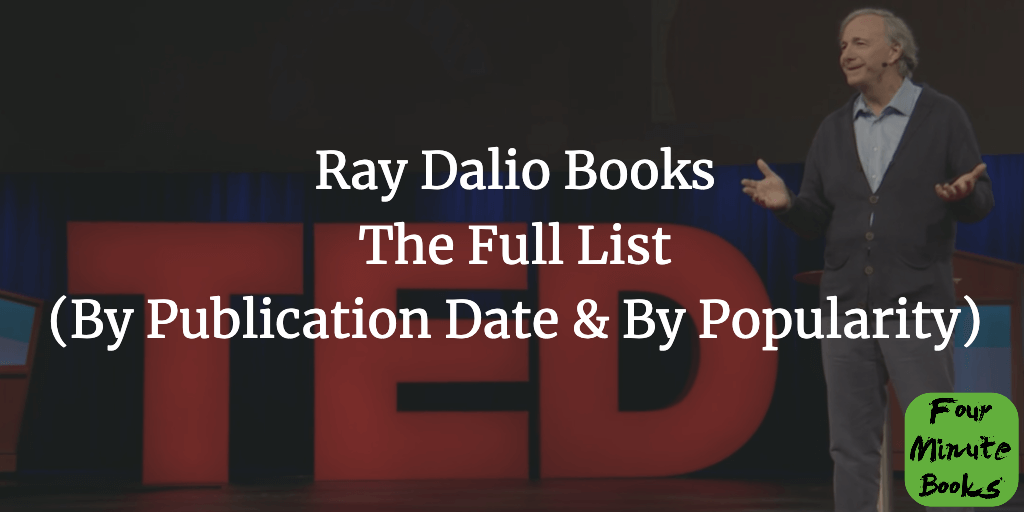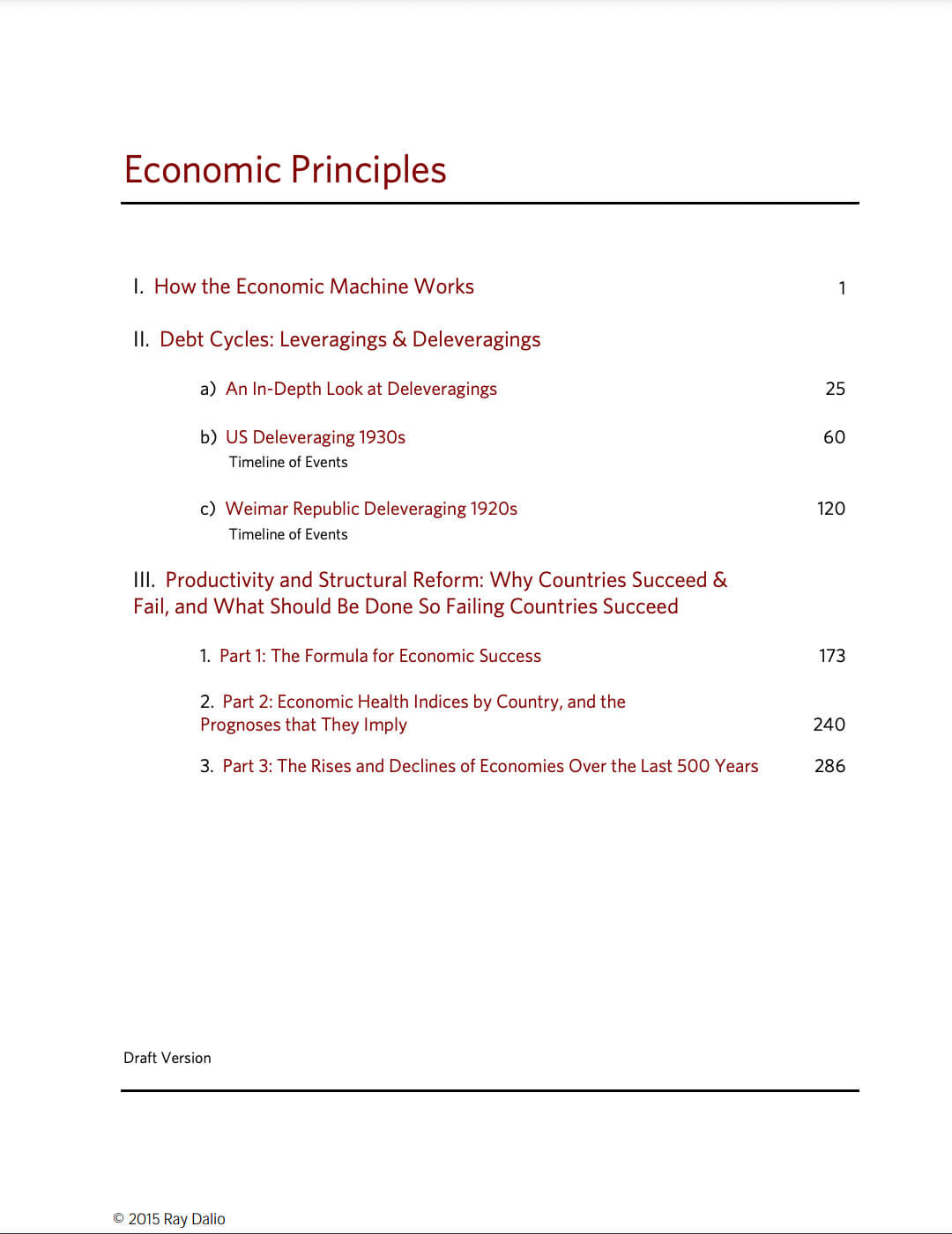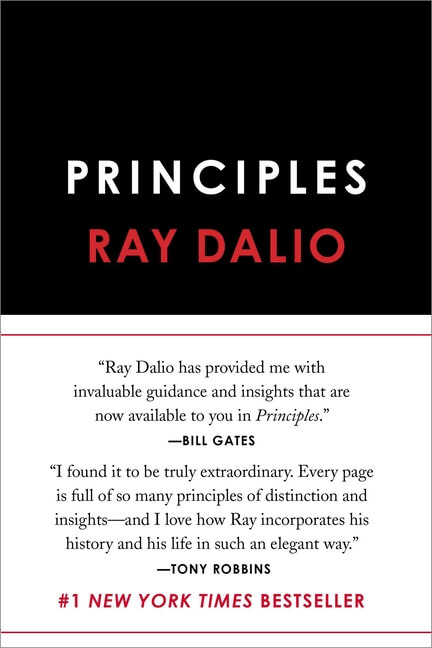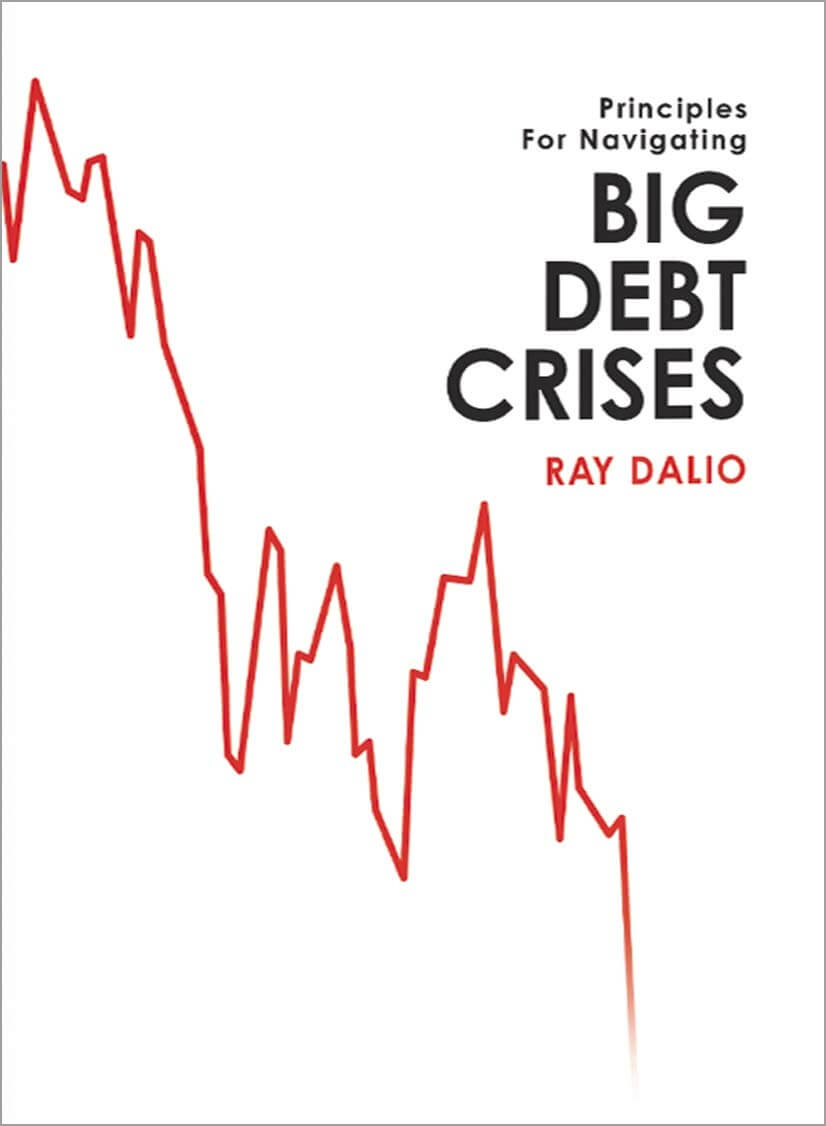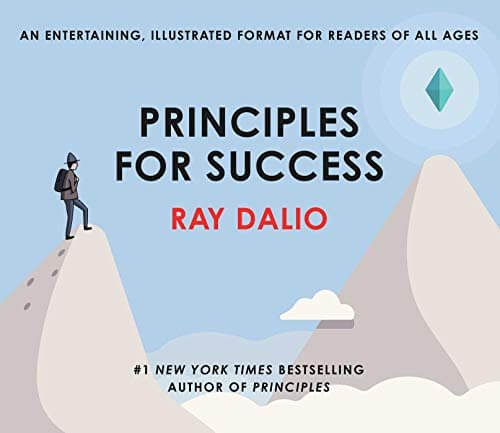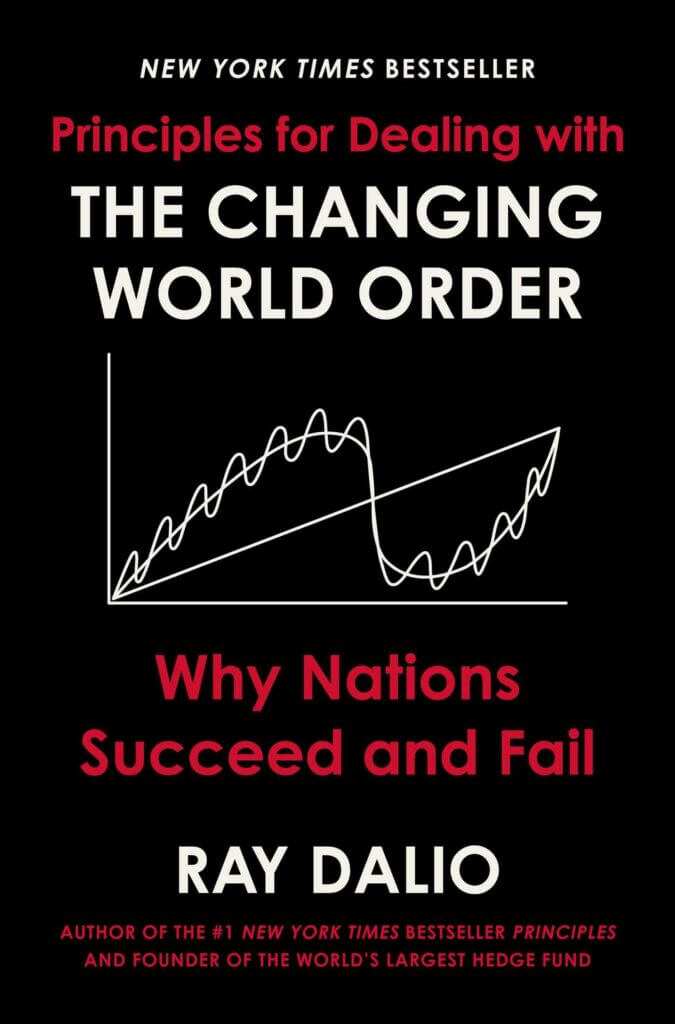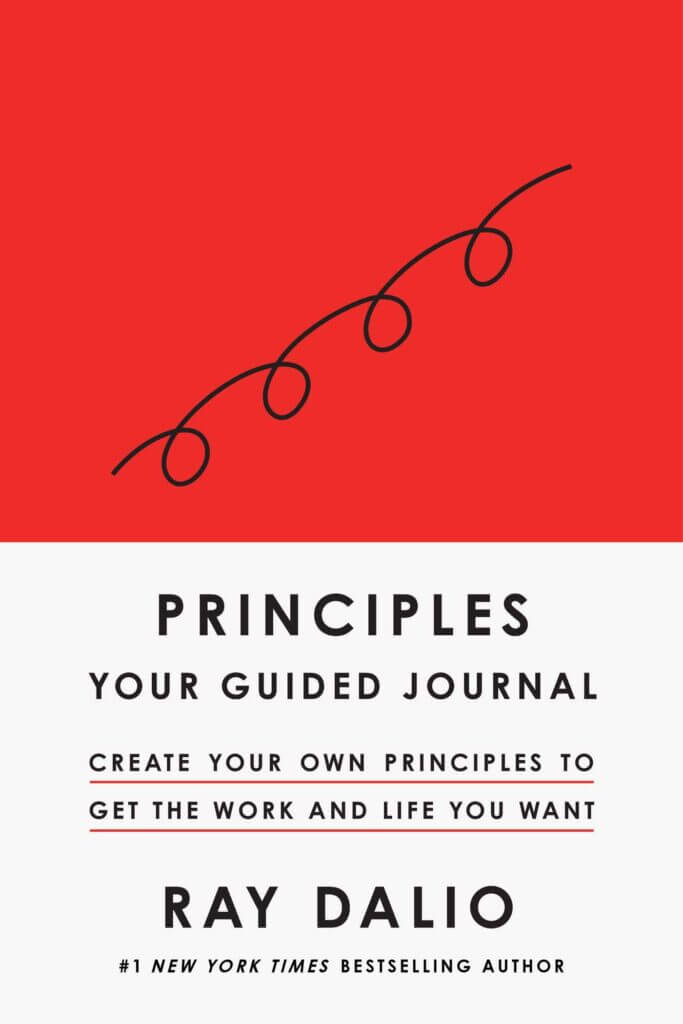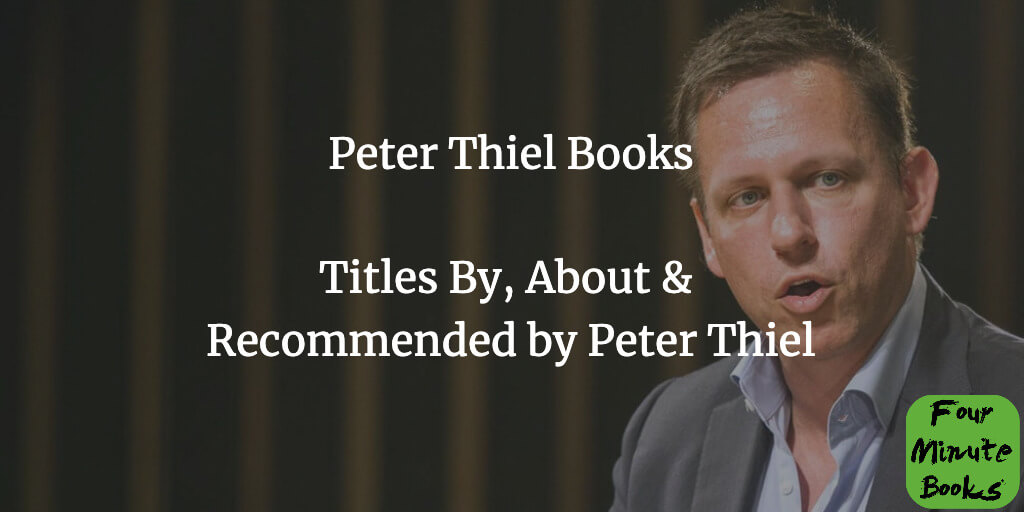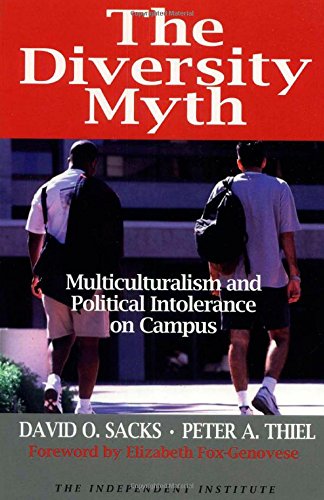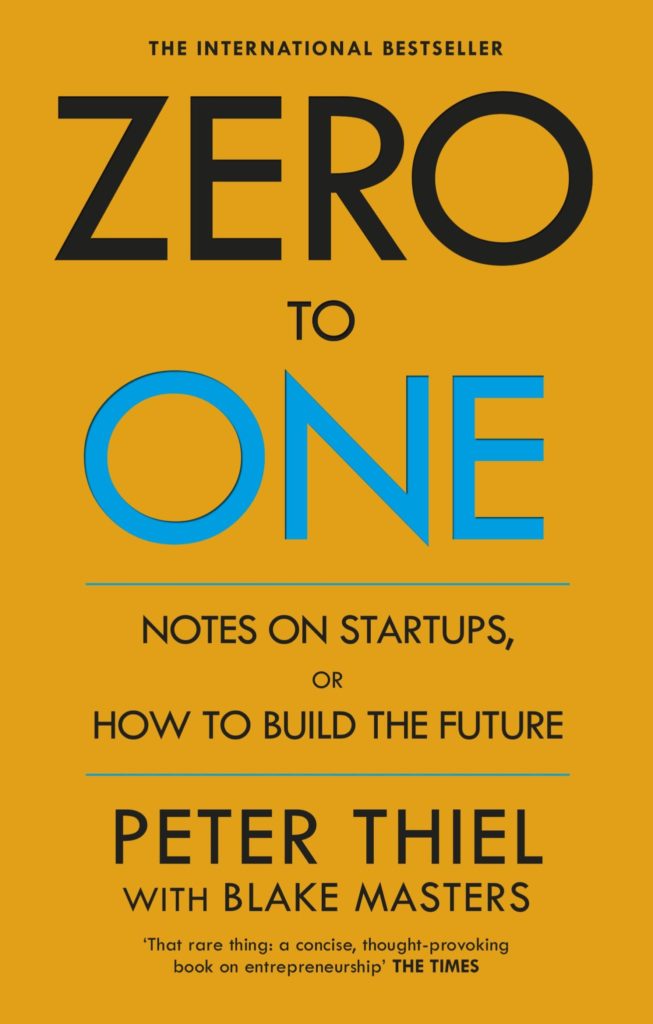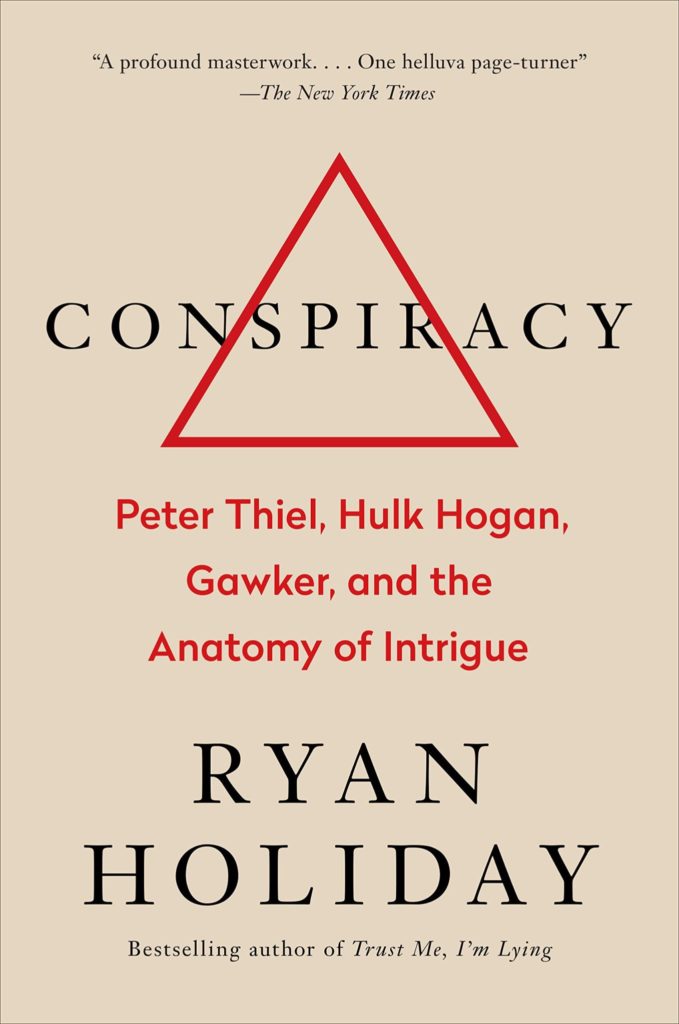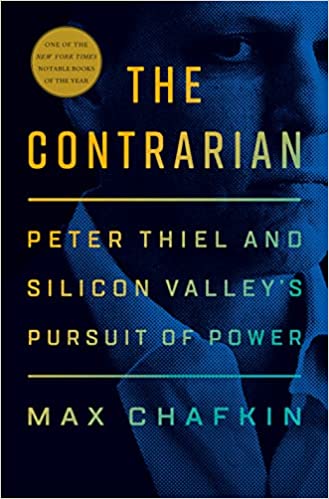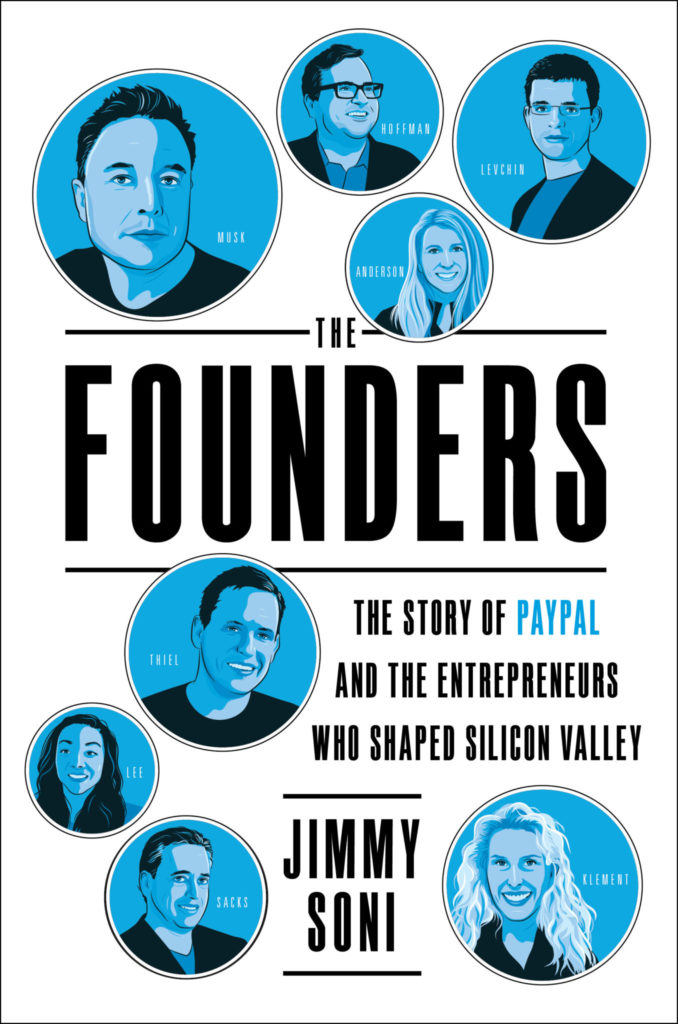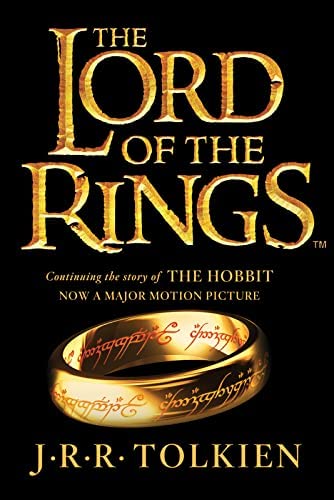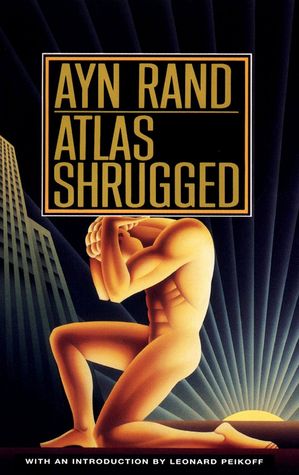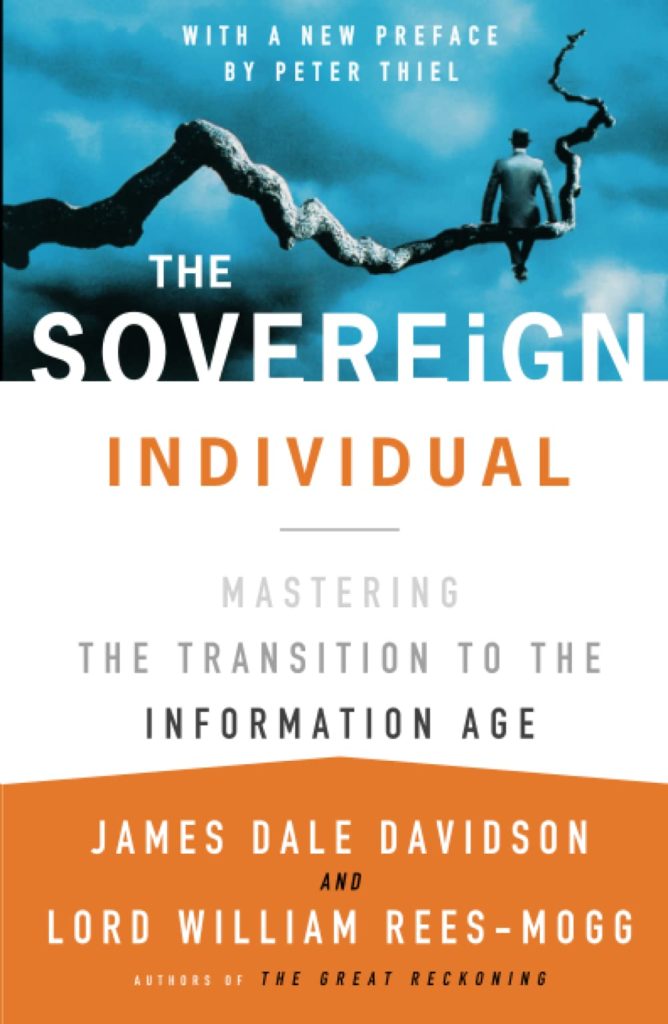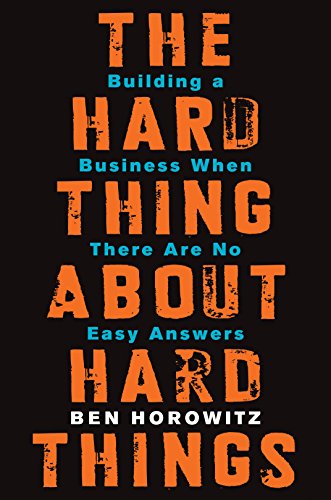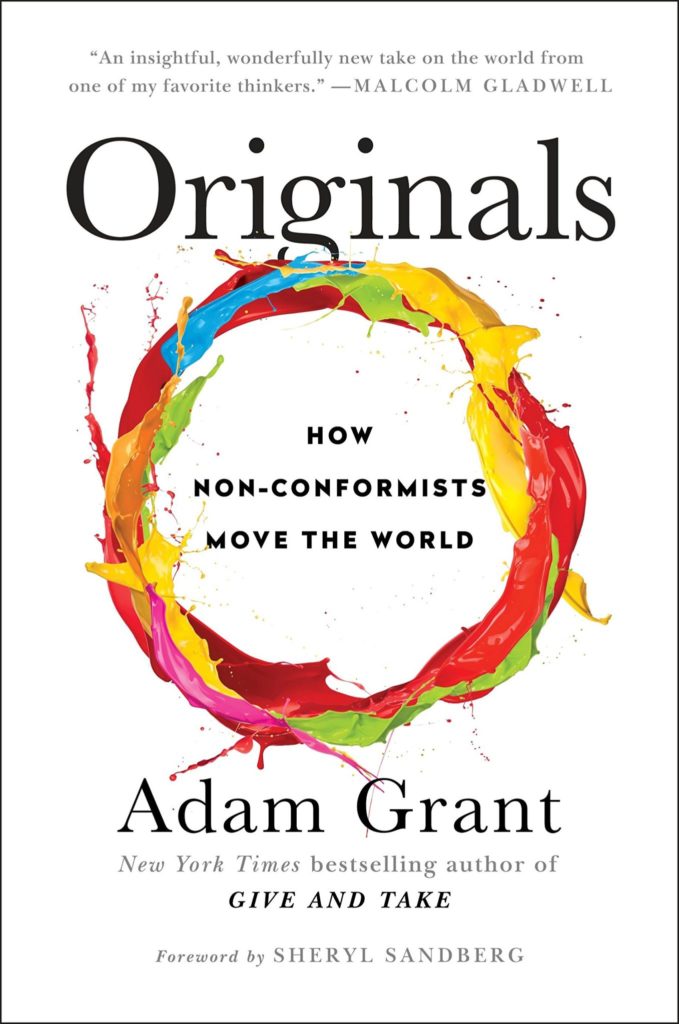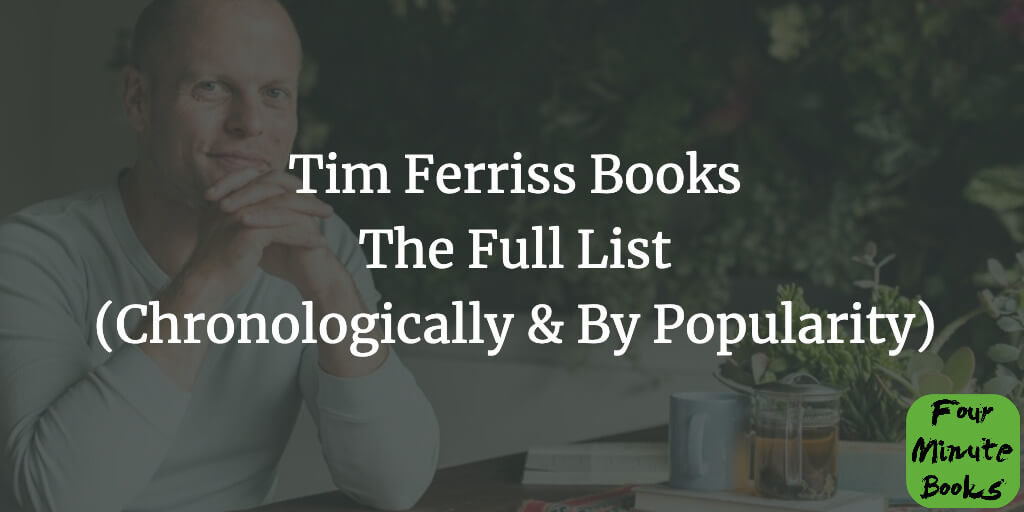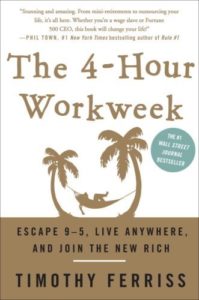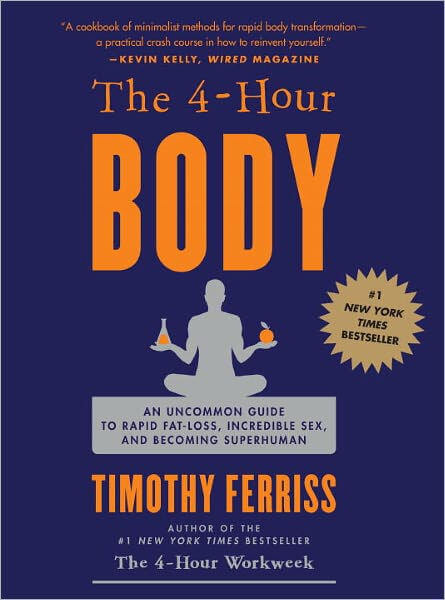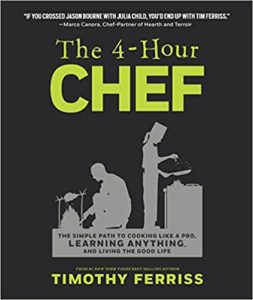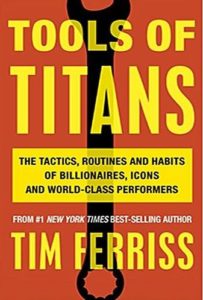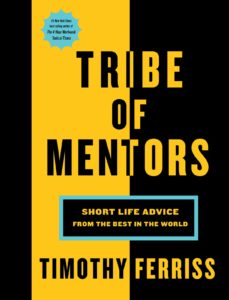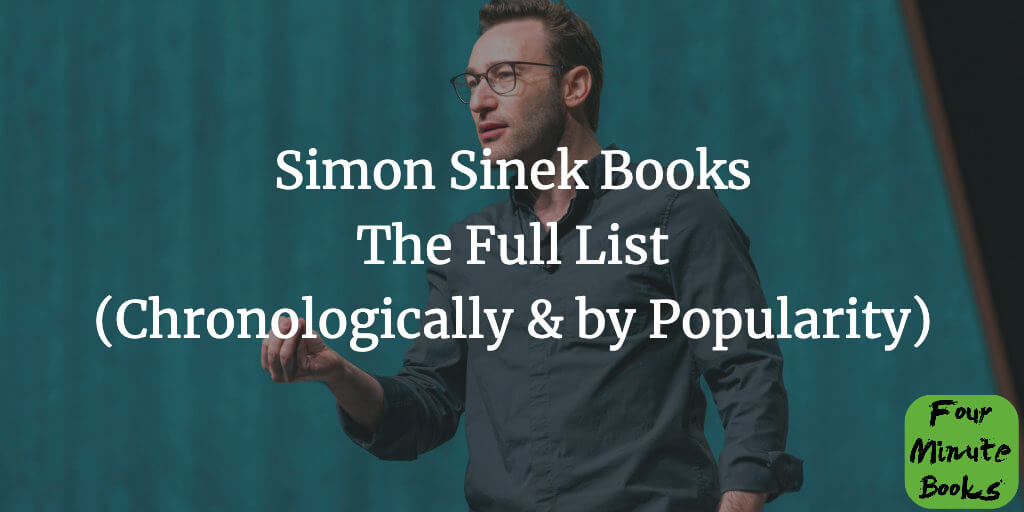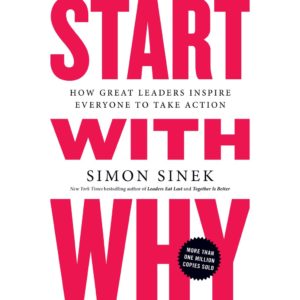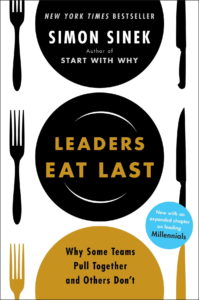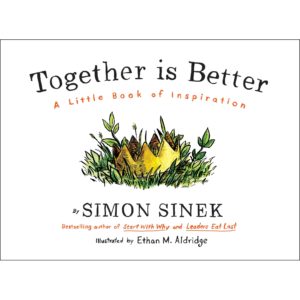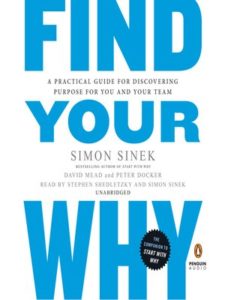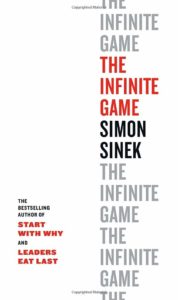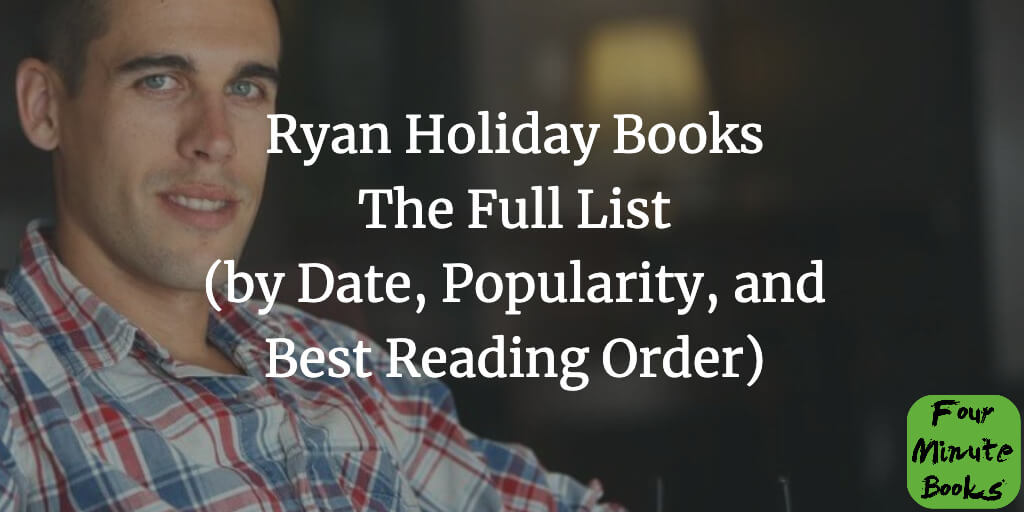
When I first discovered Ryan Holiday in 2014, he was a marketer, not a philosopher. He talked about the media industry and about growth hacking, and his job was director of marketing at American Apparel. But in that year, he also published The Obstacle Is the Way, his first book talking about Stoic philosophy, and I, like many others, thought that was a lot more interesting. If you’re looking for a full list of all Ryan Holiday books before and after his big career shift, you’ve come to the right place!
Ryan Holiday was born in 1987 in California. After graduating from high school, he gave college a go but dropped out when he was 19. Holiday then worked with author Tucker Max, and apprenticed under Robert Greene while the latter wrote The 50th Law. Thanks to his success in drumming up media buzz for both of them, he then landed his gig at American Apparel at the incredibly young age of 20.
Around the time, Holiday managed to leverage his publishing connections and marketing experience into his first book deal. Trust Me, I’m Lying became a Wall Street Journal bestseller and opened the door for him to write more books. Somewhat stepping into the footsteps of his mentor Robert Greene, he has since pivoted to deeper, more existential topics, Stoic philosophy in particular.
Nowadays, Holiday is mostly known for making the ancient philosophy from Greece accessible to a broad, modern-day audience. This happens not just through his books but also the Daily Stoic website, which offers courses, a free daily email, videos, articles, and a lot more.
Personally, I’ll be the first to admit that Ryan Holiday is one of my favorite authors of all time. As such, we’ve summarized most of his books here on Four Minute Books. Today, we’ll dig into our 1,000-book-summary lineup and compile all Ryan Holiday books for you. We’ll sort them chronologically, by popularity, and we’ll even suggest the best reading order for you.
To easily navigate this list, use the below table of contents. Click on any book or section to jump right to it. For each title, we’ve included a one-sentence-summary of the book, three key takeaways, an image of the cover, and our favorite quote. We’ll also tell you why we think you should read the book, and we’ll link to our summary or more information about it.
If you want to dive deeper into any given book, simply click the “Read on Four Minute Books” button or use one of our Amazon affiliate links to buy a copy for yourself, thus supporting the site at no extra cost to you. Alright, let’s get Stoic, shall we? Here goes the full list of Ryan Holiday books!
Table of Contents
- All Ryan Holiday Books (in Chronological Order)
- 1. Trust Me, I’m Lying (2012)
- 2. Growth Hacker Marketing (2013)
- 3. The Obstacle Is the Way (2014)
- 4. Ego Is the Enemy (2016)
- 5. The Daily Stoic (2016)
- 6. Perennial Seller (2017)
- 7. The Daily Stoic Journal (2017)
- 8. Conspiracy (2018)
- 9. Stillness Is the Key (2019)
- 10. Lives of the Stoics (2020)
- 11. Courage Is Calling (2021)
- 12. The Boy Who Would Be King (2021)
- 13. The Girl Who Would Be Free (2022)
- 14. Discipline Is Destiny (2022)
- Ryan Holiday Books by Popularity
- In What Order Should You Read Ryan Holiday’s Books?
- Conclusion
- Other Book Lists by Author
- Other Book Lists by Topic
All Ryan Holiday Books (in Chronological Order)
1. Trust Me, I’m Lying (2012)
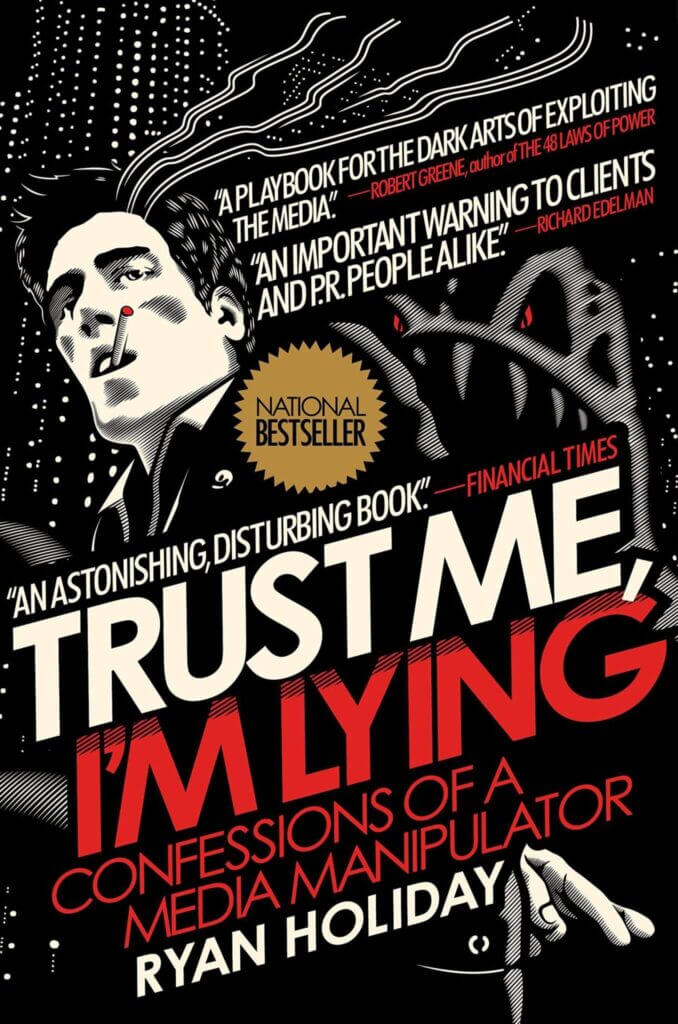
Favorite Quote
“When intelligent people read, they ask themselves a simple question: What do I plan to do with this information?” — Ryan Holiday
The Book in One Sentence
Trust Me, I’m Lying is a marketer’s take on how influential blogs have become, why that’s something to worry about, and which broken dynamics govern the internet today, including his own confessions of how he gamed that very system to successfully generate press for his clients.
Why should you read it?
When I read this book, I was just getting started in my career as a writer. I found it both shocking and helpful. Shocking, as in, “Wow, this is what people are willing to do nowadays just to get clicks.” Helpful as in, “Okay, so these are some of the smart ways to get clicks.” This book will help you level up your online marketing game. At the same time, it will show you where the ethical limits of playing this game are. Whether you’re interested in a behind-the-scenes of modern media or want to become a better marketer, this book is for you.
Key Takeaways
- A blog is a business. Always.
- Blogs will publish crap as long as it turns heads.
- The blogging industry is the new stage for public witch hunts.
If you want to learn more, you can read our free four-minute summary or get a copy for yourself.
_____
2. Growth Hacker Marketing (2013)
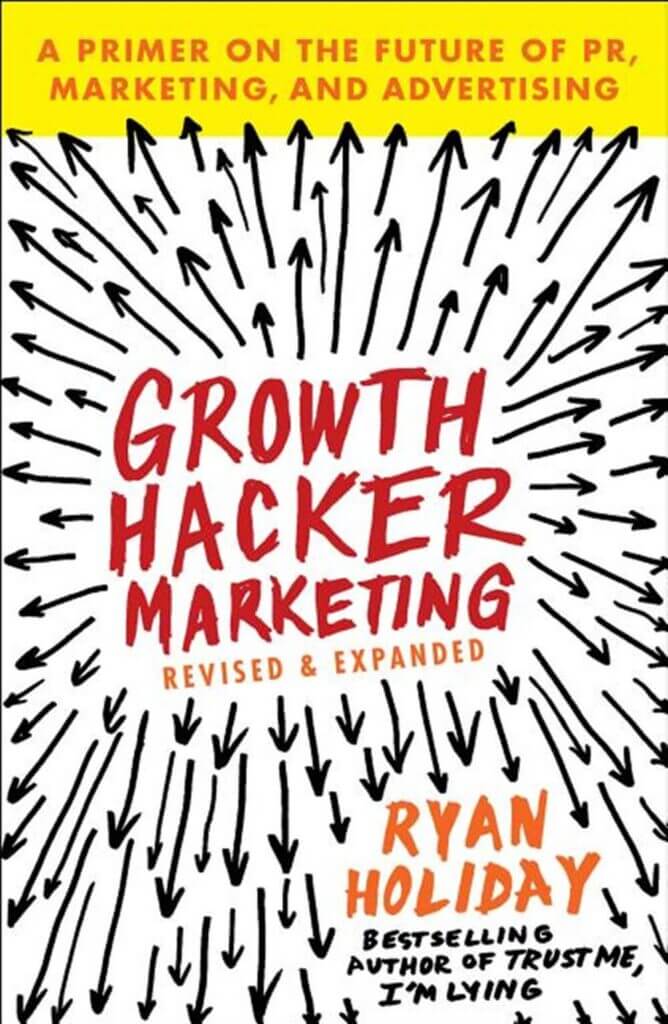
Favorite Quote
“The end goal of every growth hacker is to build a self-perpetuating marketing machine that reaches millions by itself.” — Ryan Holiday
The Book in One Sentence
Growth Hacker Marketing explains the 4-step framework today’s startups use to remove the barrier between marketing and product development, thus making the product itself the best way to get new and more customers.
Why should you read it?
If you’re trying to build anything digital, a product, a service, a community, read this book. It’s a short but incredibly enlightening read. Using case studies like AirBnB, Dropbox, and many others of the fastest-growing companies ever, this book will give you a condensed framework of what it takes to go viral and keep growing organically from there.
Key Takeaways
- Marketing for startups today is different than it was 20 years ago.
- Target one small but focused group of customers first.
- Make your product go viral by turning customers into marketers.
If you want to learn more, you can read our free four-minute summary or get a copy for yourself.
_____
3. The Obstacle Is the Way (2014)
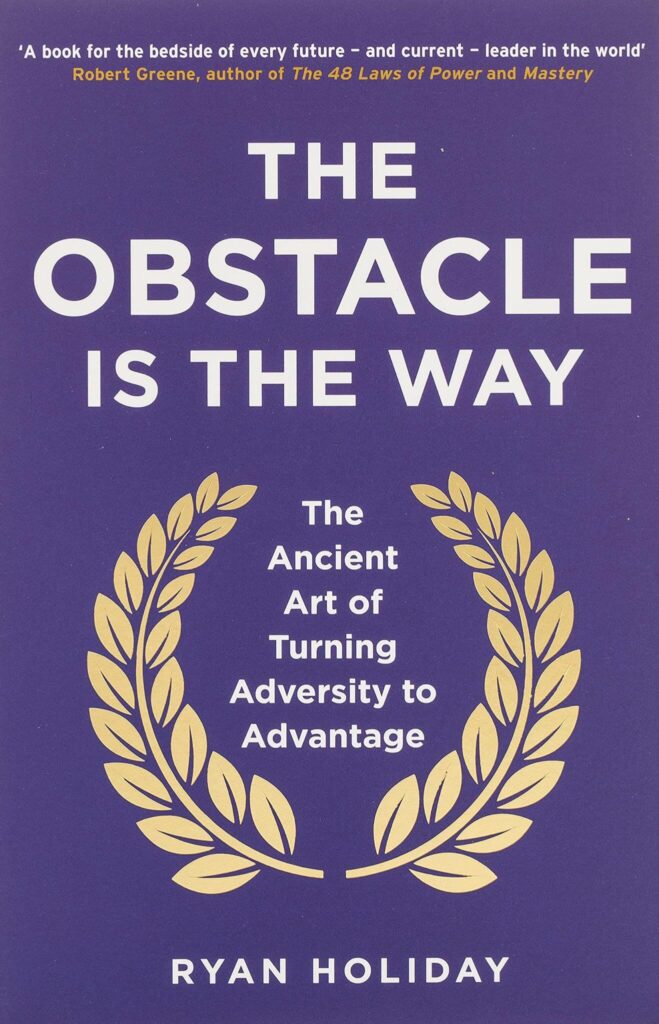
Favorite Quote
“The obstacle in the path becomes the path. Never forget, within every obstacle is an opportunity to improve our condition.” — Ryan Holiday
The Book in One Sentence
The Obstacle Is the Way is a modern take on the ancient philosophy of Stoicism, which helps you endure the struggles of life with grace and resilience by drawing lessons from ancient heroes, former presidents, modern actors, athletes, and how they turned adversity into success thanks to the power of perception, action, and will.
Why should you read it?
This is the book that put Holiday on the map as a serious modern-day philosopher. It’s also used by CEOs, NFL players, and military leaders to weather hard times and overcome adversity. If you want a blueprint for sticking with important things even when the world seems to be against you, read this one.
Key Takeaways
- Imagine you’re advising yourself as a friend to keep an objective perspective.
- Large obstacles have large weaknesses — identify them and use them to overcome even the biggest challenge.
- Use your will to accept what you cannot change and change the things you can.
If you want to learn more, you can read our free four-minute summary or get a copy for yourself.
_____
4. Ego Is the Enemy (2016)
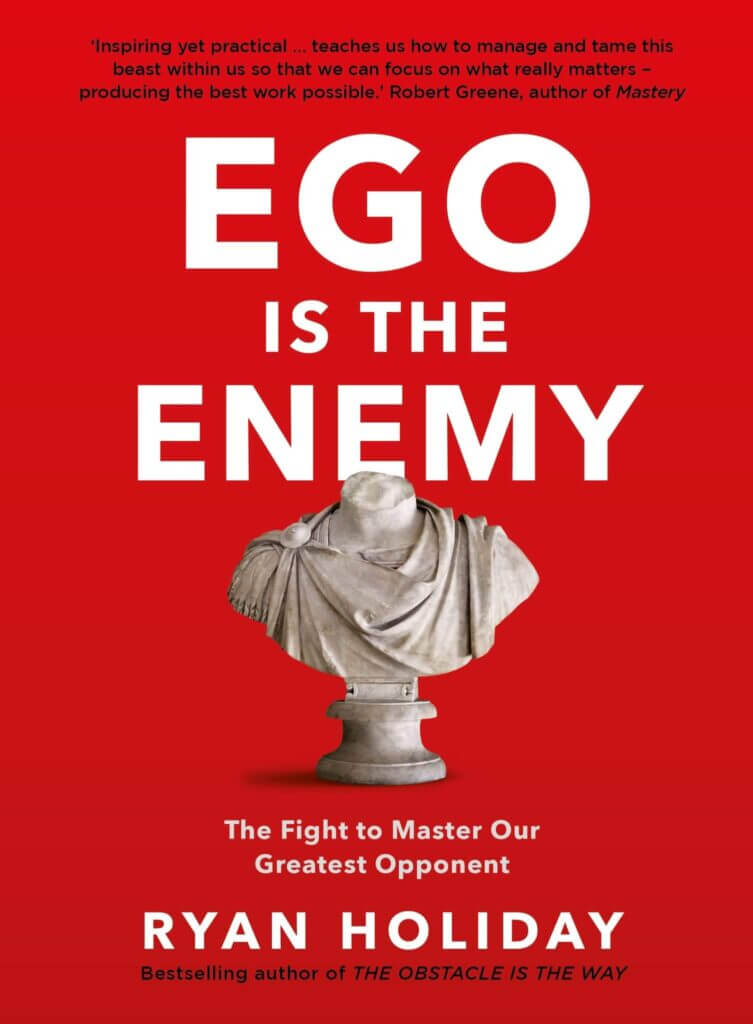
Favorite Quote
“Impressing people is utterly different from being truly impressive.” — Ryan Holiday
The Book in One Sentence
Ego Is The Enemy reveals why a tendency that’s hardwired into our brains — the belief that the world revolves around us and us alone — keeps holding us back from living the very life it dreams up for us, including what we can do to overcome our ego, be kinder to others and ourselves, and achieve true greatness.
Why should you read it?
One of the downsides of social media is that ego, if we think of it like a disease, has become rampant. It’s so easy to indulge your every whim nowadays. Angry at your delivery man? Yell at the company on Twitter. Feel like ranting about politics? Blast it out on your Facebook wall. But it’s not good to give in to our every impulse. In fact, it hurts us more than it helps, especially in the long run. If you ask yourself honestly whether you struggle with your ego and find the answer is yes, grab this book.
Key Takeaways
- Be a perpetual student. It’ll keep you modest.
- Don’t hog tasks at work. Be a team player.
- Reflect honestly on your performance when you get surprising results.
If you want to learn more, you can read our free four-minute summary or get a copy for yourself.
_____
5. The Daily Stoic (2016)
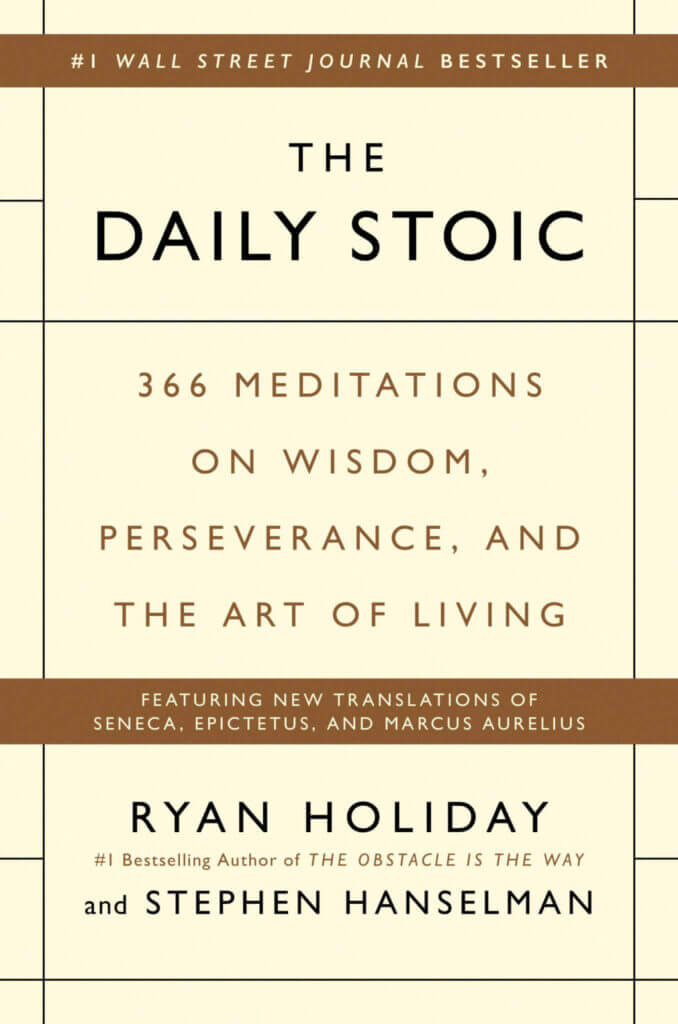
Favorite Quote
“Control your perceptions. Direct your actions properly. Willingly accept what’s outside your control.” — Ryan Holiday
The Book in One Sentence
The Daily Stoic is a year-long compilation of short, daily meditations from ancient Stoic philosophers like Seneca, Epictetus, Marcus Aurelius, and others, teaching you equanimity, resilience, and perseverance via the three Stoic disciplines of perception, action, and will.
Why should you read it?
I have read this book every year for five years in a row. It’s that good and, more importantly, that easy. A page a day. That’s all it takes. You have time to read a page a day. I know you do. Everyone does. This is also the best intro to Stoicism and, perhaps, Ryan Holiday’s work in that field. I would recommend this book to anyone. It’s one of my all-time favorites.
Key Takeaways
- Perception gives purpose to your thoughts, actions, and ultimately everything you do.
- We can change the course of our life by actively choosing our actions instead of just reacting to our impulses.
- Will is our internal power for perseverance, ready to give us hope when everything else fails.
If you want to learn more, you can read our free four-minute summary or get a copy for yourself.
_____
6. Perennial Seller (2017)
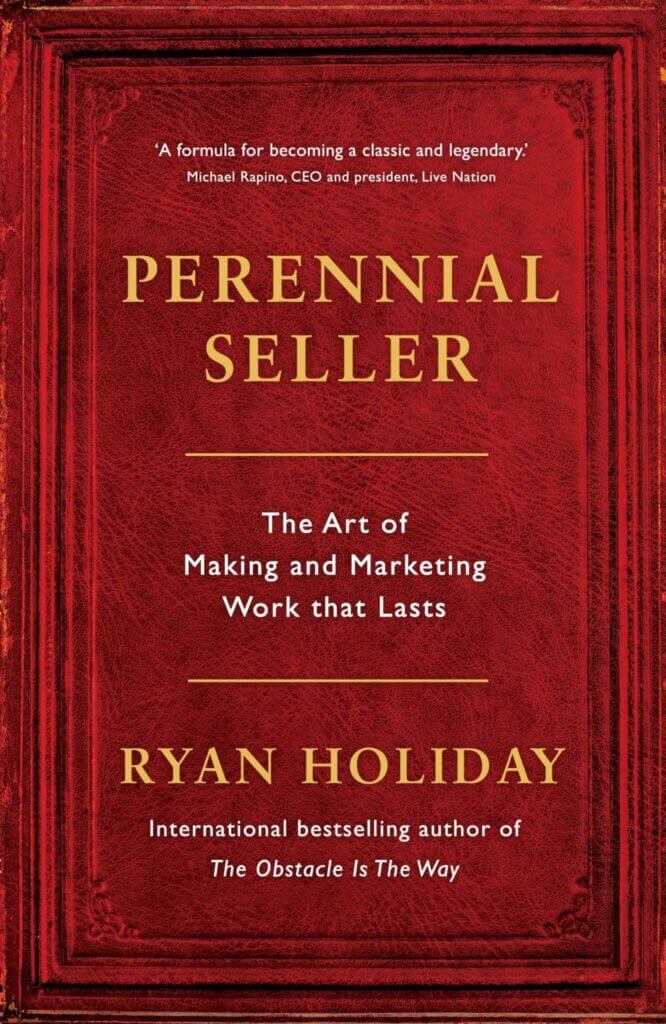
Favorite Quote
“People claim to want to do something that matters, yet they measure themselves against things that don’t, and track their progress not in years but in microseconds. They want to make something timeless, but they focus instead on immediate payoffs and instant gratification.” — Ryan Holiday
The Book in One Sentence
Perennial Seller explains how to conceive, create, and market a piece of creative work with staying power and the potential to become a classic, leaning on countless examples from the worlds of business, art, music, and literature to show you that “burn bright and fast” isn’t the only way to find creative success in the modern age.
Why should you read it?
If you’re trying to succeed in business, especially with a creative project, this might be one of the best books you can read. I loved it for its refreshing, long-term view. “Make something worth making. Something that can stand the test of time.” This book will help you do that, and that, in turn, will make the job of marketing your thing a lot easier. I think this is Ryan’s most underrated book.
Key Takeaways
- A perennial seller increases in value over time and, therefore, does not depend on hype or contemporary trends to succeed.
- Marketing a perennial seller starts before it is even made because, ultimately, it must market itself.
- Your platform is like a batting cage that increases the likelihood of hitting a home run, and you must build it before you need it.
If you want to learn more, you can click below or get a copy for yourself.
_____
7. The Daily Stoic Journal (2017)
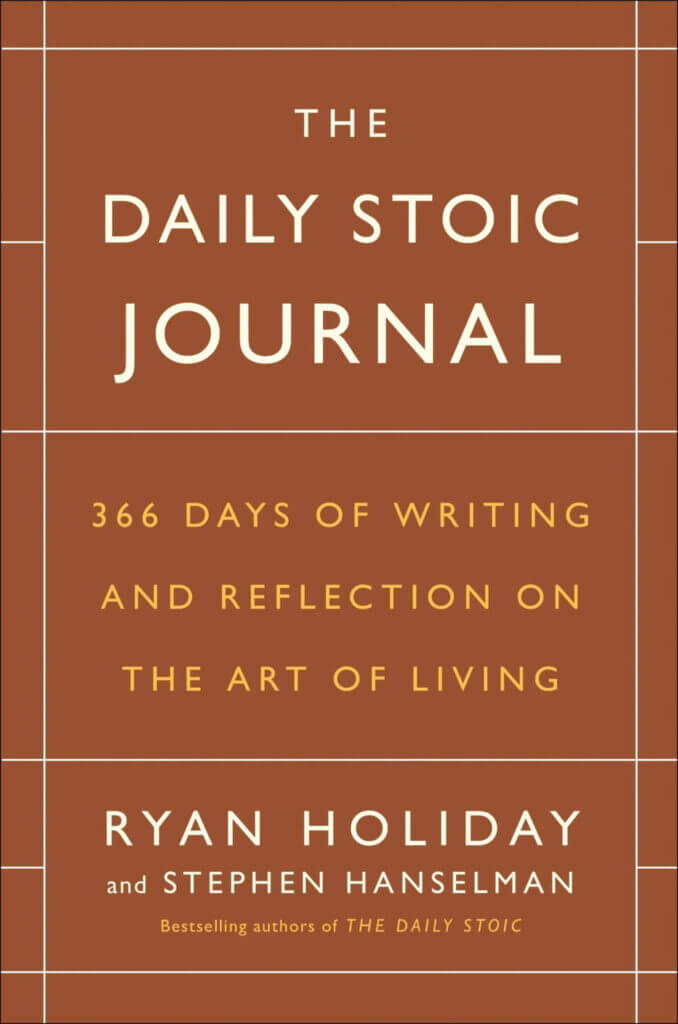
Favorite Quote
“By seeing each day and each situation as a kind of training exercise, the stakes suddenly become a lot lower. The way you interpret your own mistakes and the mistakes of others is suddenly a lot more generous.” — Ryan Holiday
The Book in One Sentence
The Daily Stoic Journal is a companion workbook to The Daily Stoic, offering time and space for daily morning and evening reflections on timeless pieces of wisdom from ancient Stoic philosophers.
Why should you read it?
I would recommend getting this after you read The Daily Stoic, assuming you liked it. Journaling on each daily entry might be a bit much if it’s your first go around, especially if you don’t know anything about Stoicism yet. But for the second time, it’ll deepen the experience, and you’ll reflect more about how you can apply the lessons to your own life. Also, the book offers both a morning and evening reflection, and I used it for two years in a row: One year, I did the mornings, the next, I journaled at night.
Key Takeaways
- The point of philosophy is to take action, not to think or theorize about its tenets.
- Stoic ideas aren’t commandments but invitations to try something new.
- Reflecting every morning helps you prepare for the day ahead; reflecting at night helps you learn from your mistakes.
If you want to learn more, you can click below or get a copy for yourself.
_____
8. Conspiracy (2018)
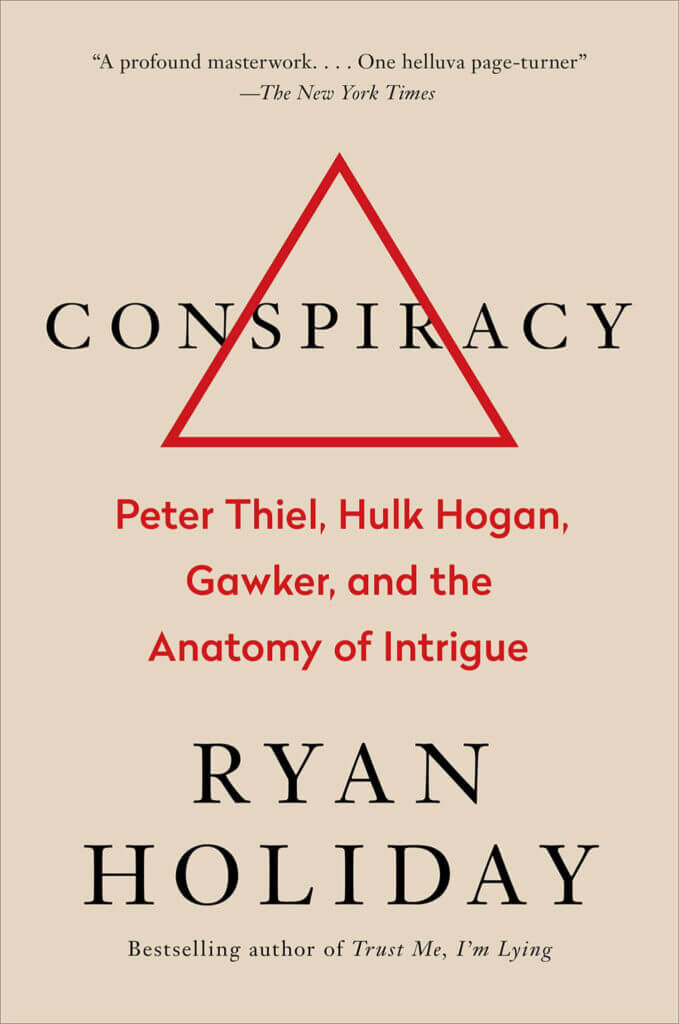
Favorite Quote
“It always takes longer than expected, per Hofstadter’s Law, even when—and this is the critical part—one takes Hofstadter’s Law into account.” – Ryan Holiday
The Book in One Sentence
Conspiracy is an account of Peter Thiel’s quest to take down Gawker Media, a blog and journalistic organization many considered predatory, exploitative, and unethical, for outing him as gay, which he accomplished nearly a decade later by funding former wrestler Hulk Hogan’s lawsuit against the company over an illegally obtained and published sex tape.
Why should you read it?
This is a sort of follow-on to Trust Me, I’m Lying. Holiday was fascinated with the whole Thiel vs. Gawker situation, and so he used his media experience to dive deep. While this book is a good read for anyone who works in marketing, journalism, or public relations, it’s also an interesting case study of “money is power.” We all pick up a lot of ideas about this concept from movies and TV, but this is a real-world account of someone ultra-wealthy using their money and influence to bend the world to their will, and that makes for a both fascinating and cautionary tale.
Key Takeaways
- Conspiracies come in 3 phases: the planning, the doing, and the aftermath.
- Sometimes, the worst thing you can do in the face of a media backlash is to try and contain it, thus only making it worse.
- Don’t wait to act on small threats, because once they grow into big ones, it might be too late to do anything about them.
If you want to learn more, you can click below or get a copy for yourself.
_____
9. Stillness Is the Key (2019)
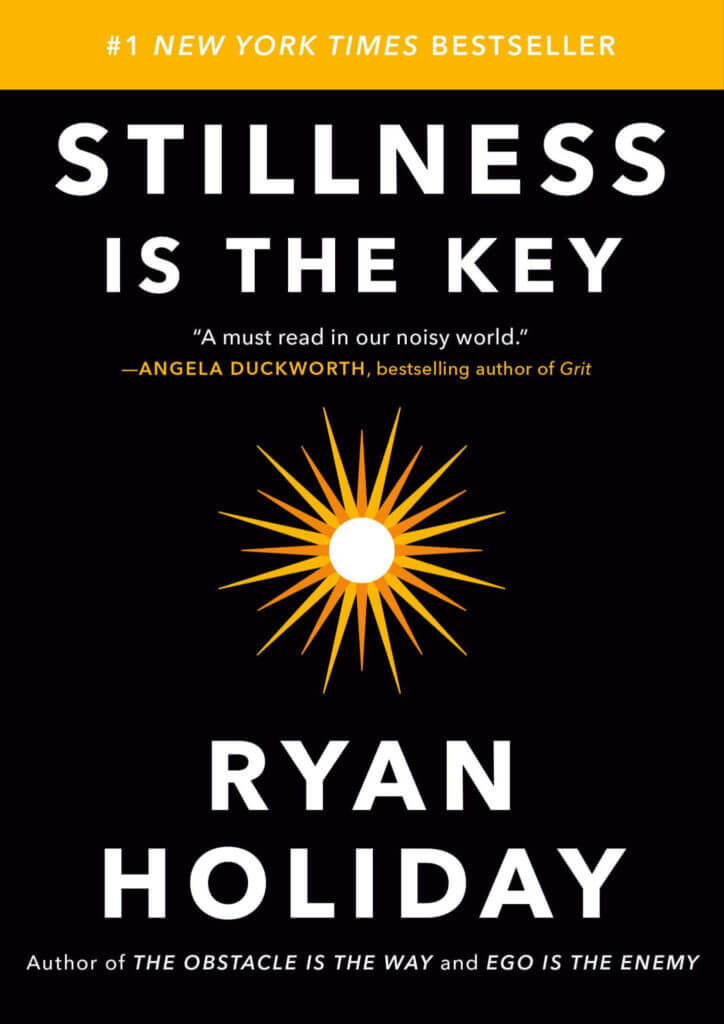
Favorite Quote
“Stillness is what aims the archer’s arrow. It inspires new ideas. It sharpens perspective and illuminates connections.” — Ryan Holiday
The Book in One Sentence
Stillness Is the Key will show you how to harness the power of slowing down your body and mind for less distractions, better self-control, and, above all, a happier and more peaceful life.
Why should you read it?
The world seems to spin a little faster every year. Information arrives more quickly and more frequently. Social media content gets shorter, and our attention spans erode in lockstep with it. At some point, the best thing you can do is not to keep up with the trend but to turn the whole thing off. “Hey, I’m human! I live on earth. I can step outside and touch the dirt, and that’s real!” It’s scary how many of us need this realization on a regular basis. This book will help you get that and then some, bringing peace and quiet back to your busy brain.
Key Takeaways
- No matter what kind of crisis you might be in, slowing down will make it a bit easier to get through it.
- If you want more peace and clarity of mind, allow more silence into your life.
- To be at your best every day, work in moderation, and embrace your need to sleep.
If you want to learn more, you can read our free four-minute summary or get a copy for yourself.
_____
10. Lives of the Stoics (2020)
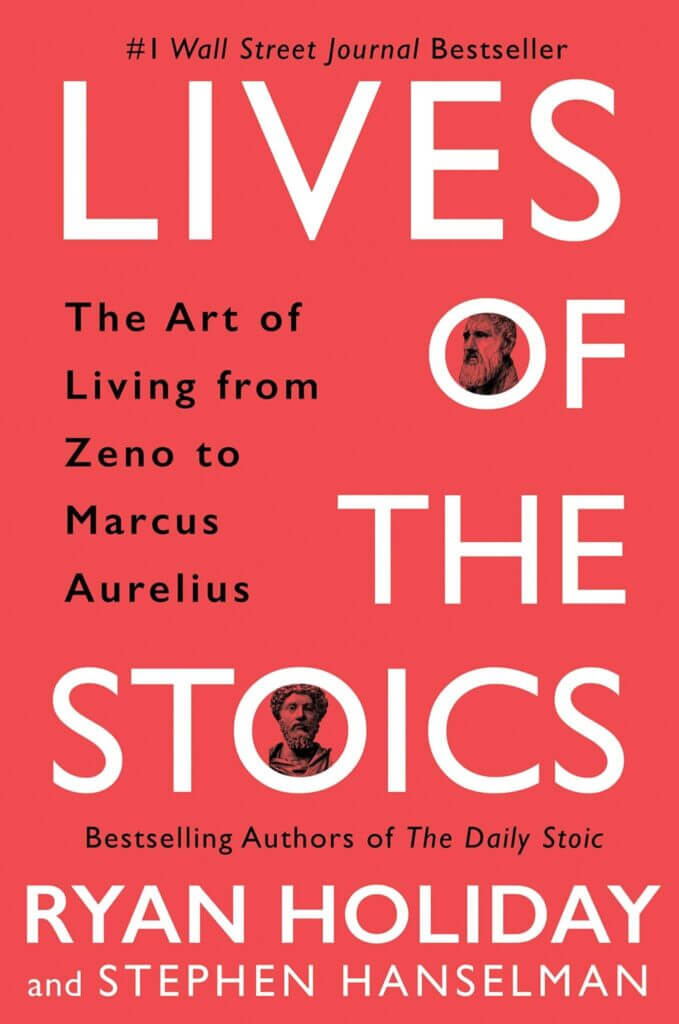
Favorite Quote
“There is no better definition of a Stoic: to have but not want, to enjoy without needing.” — Ryan Holiday
The Book in One Sentence
Lives of the Stoics is a deep dive into the experiences and beliefs of some of the earliest philosophers in history, particularly the advocators and followers of the four big Stoic virtues: courage, discipline, justice, and wisdom.
Why should you read it?
If you want to know more about the people behind Stoicism and the story of how it initially came about, this is a good book. How well did the philosophers live up to their teachings? Who came up with which Stoic practice? Think of this as an interesting biography of not one but a group of inspiring people, specked with many useful lessons for your own life along the way.
Key Takeaways
- Stoicism came about as a result of extreme hardship.
- Not everyone who followed Stoicism lived up to its standards.
- Marcus Aurelius was a Roman whose practice of Stoicism helped him lead with compassion and humility.
If you want to learn more, you can read our free four-minute summary or get a copy for yourself.
_____
11. Courage Is Calling (2021)
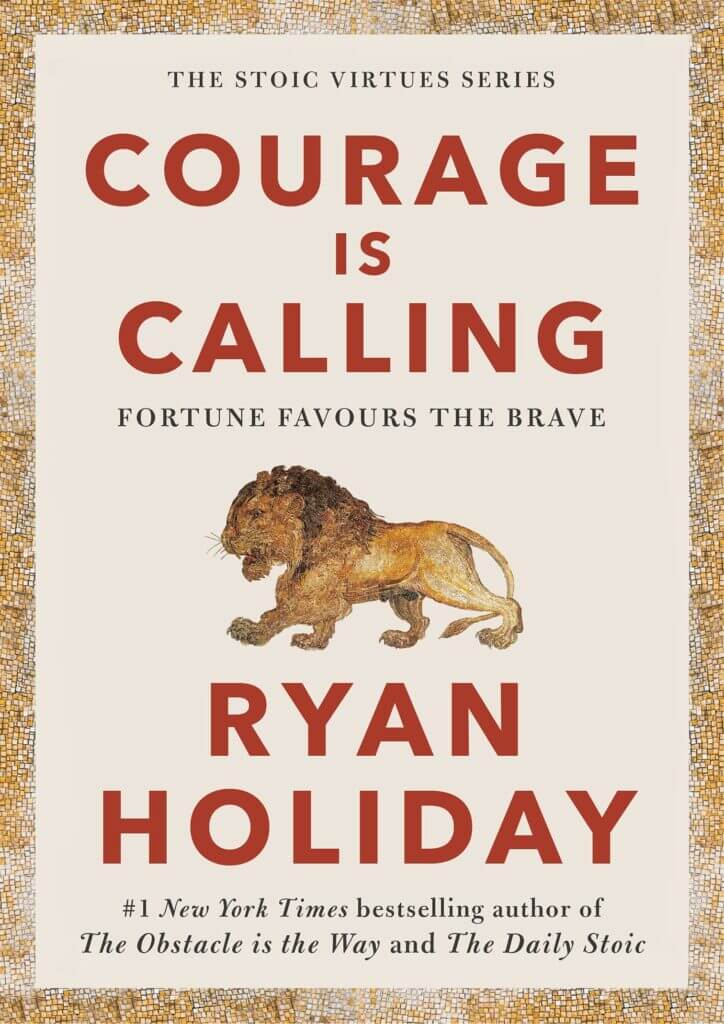
Favorite Quote
“There is nothing worth doing that is not scary. There is no one who has achieved greatness without wrestling with their own doubts, anxieties, limitations, and demons.” — Ryan Holiday
The Book in One Sentence
Courage Is Calling will show you how to act with courage in any life situation by analyzing the actions taken in difficult situations by some of history’s leading figures, drawing conclusions about what makes someone courageous and how to become a braver person day-by-day, step-by-step.
Why should you read it?
In Joseph Campbell’s “hero’s journey” framework, a fundamental rule is that the hero always rejects the initial call prompting her to go on an adventure. Even for heroes, courage isn’t easy! If you feel like you know what you’re meant to do in life but can’t find the guts to take the leap, this book will inspire you to step up.
Key Takeaways
- To be brave implies stepping forward in the face of danger instead of stepping back.
- Fear is amplified by vagueness, so fight it with rationality and a clear mind.
- Courage is a virtue gained from repeated, small acts of bravery.
If you want to learn more, you can read our free four-minute summary or get a copy for yourself.
_____
12. The Boy Who Would Be King (2021)
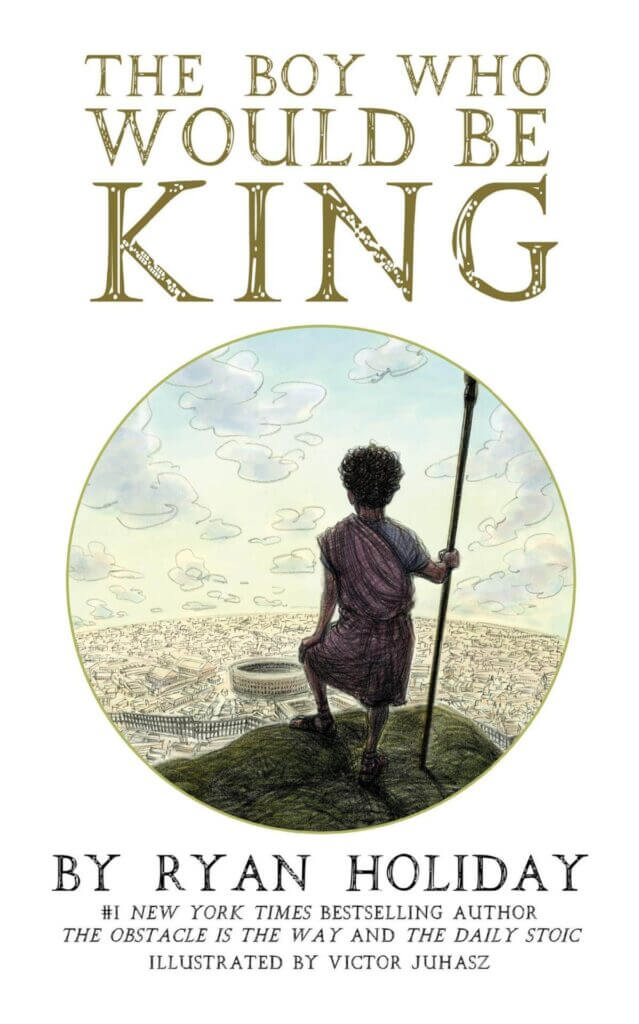
Favorite Quote
“It doesn’t matter if you’re tired or well-rested. It doesn’t matter if it’s hard or easy. If you’re cold or warm. What counts, whether you’re a kid or a king or anything in between, is that you do the right thing.” — Ryan Holiday
The Book in One Sentence
The Boy Who Would Be King is a fable telling the story of a young Marcus Aurelius, a boy who didn’t want to be king but decided to step up to the task fate had presented him with.
Why should you read it?
This is a great book to teach children good values, but it’s also a nice primer and reminder of why Stoicism is worth studying in the first place. If you need some inspiration to persevere in a difficult situation, this book might offer the renewed energy you seek.
Key Takeaways
- We don’t control what happens to us, but we control how we respond to it.
- The best king is rarely the person who most wants to be king.
- You’ll never feel ready to step into your biggest dream, so you might as well start with what you’ve got.
If you want to learn more, you can click below or get a copy for yourself.
_____
13. The Girl Who Would Be Free (2022)
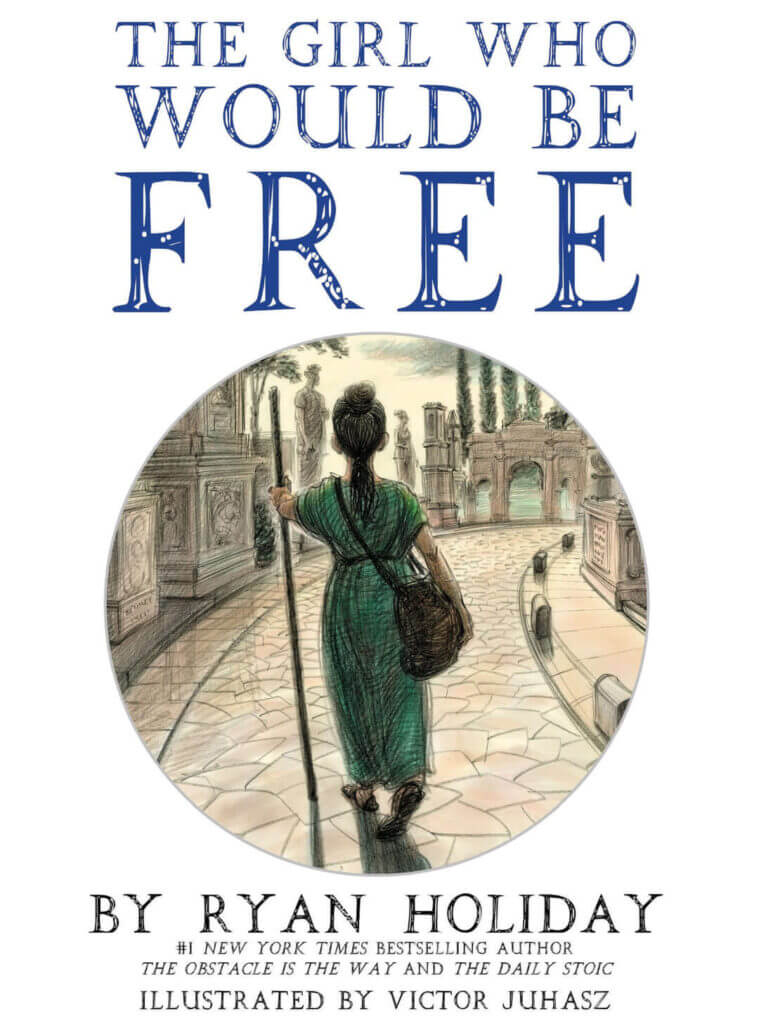
Favorite Quote
“If any part of this artistic choice is upsetting to you, well, let us remind you of one of Epictetus’s greatest quotes: ‘If someone succeeds in provoking you, realize that your mind is complicit in the provocation. Which is why it is essential that we not respond impulsively to impressions; take a moment before reacting, and you will find it easier to remain in control.’” — Ryan Holiday
The Book in One Sentence
The Girl Who Would Be Free is a fictionalized retelling of famous slave-turned-philosopher Epictetus’ life story, who not only managed to drop the shackles of slavery but later inspired millions through his example and ideas.
Why should you read it?
If you don’t find Marcus Aurelius’ story as inspiring because he started off wealthy and privileged, maybe Epictetus’ story will be more up your alley. He went through a different, some might say “truer” kind of hardship, and it makes his responses all the more inspiring. I like that Holiday chose to make Epictetus a girl for the book. It’s well in line with the Stoic spirit, and if you want to know exactly why, well, then you’ll have to flick through this short children’s book.
Key Takeaways
- True freedom lies in the mind and in the mind alone.
- Being rich is not about having a lot, it’s about desiring little.
- Show the world what you believe in with your actions, not your words.
If you want to learn more, you can click below or get a copy for yourself.
_____
14. Discipline Is Destiny (2022)
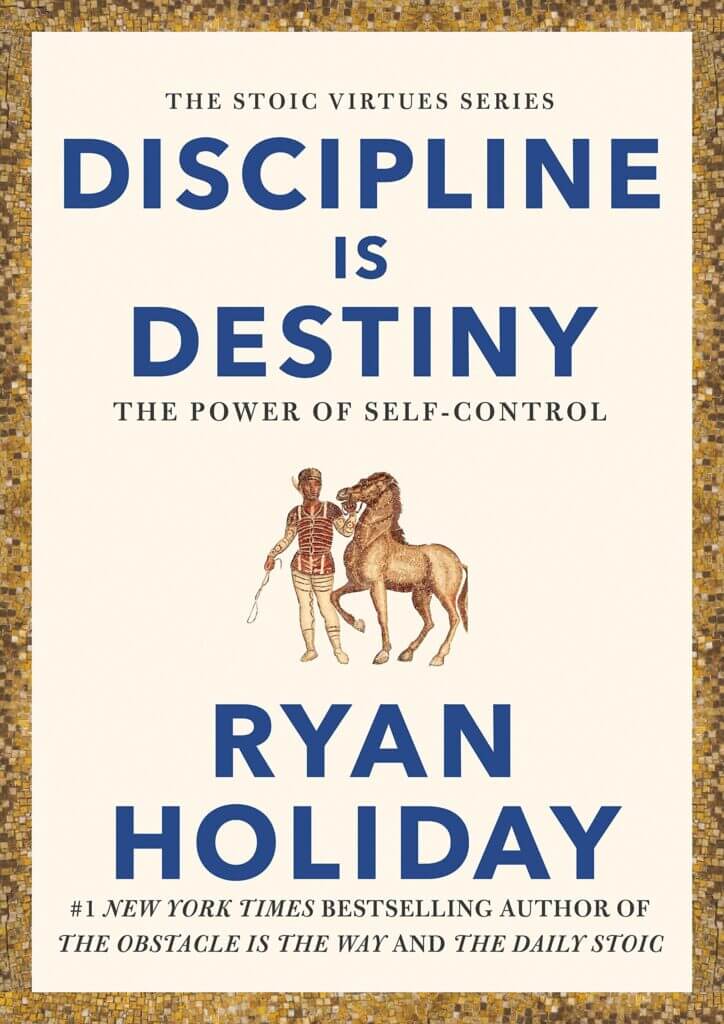
Favorite Quote
“You don’t have to always be amazing. You do always have to show up. What matters is sticking around for the next at bat.” — Ryan Holiday
The Book in One Sentence
Discipline Is Destiny is a three-part manual to master and implement the Stoic virtue of temperance, aka discipline, in your life, thus improving your body, mind, and spirit.
Why should you read it?
We think of disciplined people as grim ascetics, but actually, being disciplined all the time is not the point. The point is to make better decisions that will leave you happier in the long run — and those can start in surprisingly small ways. Skip dessert. Choose not to get a second soda. Refuse the urge to check your email. This book will show you that discipline is not only attainable but conducive to happiness. It will give you a more positive perception of something we think is “annoying but necessary.”
Key Takeaways
- Controlling your body is the first step of mastering self-discipline, and it can happen in many small ways.
- Only a moderate mind can be happy, and directing your brain is a lifelong job.
- Discipline is about actualization, not isolation, so stay kind to yourself and others.
If you want to learn more, you can read our free four-minute summary or get a copy for yourself.
_____
Ryan Holiday Books by Popularity
Wondering which Ryan Holiday books are the most popular? Here’s a short reorder of the list based on the total number of Amazon ratings, ranked from most to least.
- The Daily Stoic: 366 Meditations on Wisdom, Perseverance, and the Art of Living (⭐️ 24,000+ Ratings ⭐️)
- The Obstacle Is the Way: The Timeless Art of Turning Trials into Triumph (⭐️ 14,100+ Ratings ⭐️)
- Ego Is the Enemy: The Fight to Master Our Greatest Opponent (⭐️ 10,500+ Ratings ⭐️)
- Stillness Is the Key: An Ancient Strategy for Modern Life (⭐️ 6,000+ Ratings ⭐️)
- Courage Is Calling: Fortune Favours the Brave (⭐️ 3,100+ Ratings ⭐️)
- Lives of the Stoics: The Art of Living from Zeno to Marcus Aurelius (⭐️ 2,200+ Ratings ⭐️)
- The Daily Stoic Journal: 366 Days of Writing and Reflection on the Art of Living (⭐️ 1,900+ Ratings ⭐️)
- Growth Hacker Marketing: A Primer on the Future of PR, Marketing and Advertising (⭐️ 1,700+ Ratings ⭐️)
- Trust Me I’m Lying: Confessions of a Media Manipulator (⭐️ 1,300+ Ratings ⭐️)
- Conspiracy: Peter Thiel, Hulk Hogan, Gawker, and the Anatomy of Intrigue (⭐️ 730+ Ratings ⭐️)
- The Boy Who Would Be King: A Fable About Marcus Aurelius (⭐️ 720+ Ratings ⭐️)
- Discipline Is Destiny: The Power of Self-Control (⭐️ 680+ Ratings ⭐️)
- Perennial Seller: The Art of Making and Marketing Work that Lasts (⭐️ 600+ Ratings ⭐️)
- The Girl Who Would Be Free: A Fable About Epictetus (⭐️ 70+ Ratings ⭐️)
Ryan Holiday’s books have sold over five million copies to date. Clearly, his work has stood the test of time. I think it is fitting that The Daily Stoic, which is the best entry into his writing and Stoic philosophy, if you ask me, has become his most popular title over time.
In What Order Should You Read Ryan Holiday’s Books?
Which of Ryan Holiday’s books should you read first? If you ask us, here’s the order in which reading his books makes the most logical sense based on their topics. Let’s start with his books about Stoicism, as that’s his main focus.
- The Daily Stoic: This is the easiest intro to Stoicism all around. At just one page per day, it’s also a manageable read for almost anyone.
- The Daily Stoic Journal: As I said before, I think this is a great add-on for your second read of The Daily Stoic, adding a layer of depth and personal application through your short, daily journal entries.
- The Obstacle Is the Way: After using The Daily Stoic as a primer, I think it makes sense to go deeper via Ryan’s original trilogy on Stoicism, and this is the book that started it all.
- Ego Is the Enemy: Learning how to overcome obstacles is great. Learning how to show humility when you fail to do so is a necessary next step — and part of the process of persevering to begin with.
- Stillness Is the Key: Everything works better when you’re calm. This book will help you find your center and decide, equipped with both humility and determination, what to do next.
- Lives of the Stoics: Now that you’ve spent quite some time with Stoicism already, it’ll be nice to fill in some of the backstory and context via this multi-biography of its most important figures.
- The Boy Who Would Be King: Time for a break! You’ll flick through this children’s book in no time yet find more and a new kind of inspiration to further pursue Stoic ideals.
- The Girl Who Would Be Free: And again, even more lightweight yet meaningful inspiration.
- Courage Is Calling: The reason I kept these next two books for last is that they are only two out of four, covering the four cardinal stoic values of courage, discipline, justice, and wisdom. So if you start these last, perhaps by the time you’re done with them, the rest will have been released, and you can read all four books in order.
- Discipline Is Destiny: This is the next out of the four books in the “Stoic Virtues” series. Courage gets you going. Discipline keeps you going. Plus, almost everyone struggles with this skill.
For Ryan Holiday’s books about media and marketing, we recommend the following order:
- Perennial Seller: Like I said, I think this is Ryan’s most underrated book. It’s a great template for making great creative work with the power to last.
- Growth Hacker Marketing: Once you’ve made a great thing, you still need to promote it. Perennial Seller covers some of that, but this short read is full of actionable steps. It’s also an end-to-end framework you can implement for your launch campaign, so it’s the perfect follow-up.
- Trust Me, I’m Lying: Ryan’s first book has more tips and tactics for marketers, but it also contains a lot of backstory on the media industry in general, so it makes sense to read this later when you’re hopefully enjoying some material success from the thing you’ve made and shipped.
- Conspiracy: This book is even more specific than Trust Me, I’m Lying, so unless you have an acute interest in the Thiel vs. Gawker situation, it’s more of an optional add-on.
While I think all of Ryan’s books so far are worth reading, especially the ones on Stoicism, if you just pick the first one in each category here, you’ll be off to a great start. Then, the rest is up to you!
Conclusion
Ryan Holiday is a kind, compassionate man. He’s also an excellent thinker and perhaps the #1 proponent of Stoicism alive today. His writing is encouraging, inspiring, and yet down-to-earth. As a longtime fan and reader, I can wholeheartedly recommend that you check out his work, and I hope our complete list of Ryan Holiday books will help you do just that.
By the way, for a little sneak peek, we’ve discovered that Ryan’s next three, upcoming books are tentatively titled The Daily Dad, Just Do the Right Thing, and Wisdom Takes Work.
Other Book Lists by Author
Looking for more books by the world’s most celebrated authors? Here are all of the book lists by author we’ve curated for you:
- All Brené Brown Books, Sorted Chronologically (and by Popularity)
- Jordan Peterson Books: All Titles in Order of Publication + The 5 Top Books He Recommends
- All Malcolm Gladwell Books, Sorted Chronologically (and by Popularity)
- All Michael Pollan Books, Sorted Chronologically (and by Popularity)
- Peter Thiel Books: A Comprehensive List of Books By, About & Recommended by Peter Thiel
- All Rachel Hollis Books: The Full List of Non-Fiction, Fiction & Cookbooks, Sorted by Popularity & the Best Reading Order
- All Ray Dalio Books, Sorted Chronologically (and by Popularity)
- All Robert Greene Books, Sorted Chronologically (and by Popularity)
- All Ryan Holiday Books, Sorted Chronologically (and by Popularity)
- All Simon Sinek Books, Sorted Chronologically (and by Popularity)
- All Tim Ferriss Books, Sorted Chronologically (and by Popularity)
- All Walter Isaacson Books, Sorted Chronologically (and by Popularity)
Other Book Lists by Topic
Looking for more of the best books on various topics? Here are all the book lists we’ve made for you so far:
- The 60 Best Business Books of All Time (Will Forever Change How You Think About Organizations)
- The 20 Best Entrepreneurship Books to Start, Grow & Run a Successful Business
- The 14 Best Finance Books of All Time
- The 21 Best Habit Books of All Time to Change Any Behavior
- The 33 Best Happiness Books of All Time That Everyone Should Read
- The 60 Best History Books of All Time (to Read at Any Age)
- The 7 Best Inspirational Books That Will Light Your Inner Fire
- The 40 Best Leadership Books of All Time to Help You Become a Truly Inspiring Person
- The 31 Best Motivational Books Ever Written
- The 12 Best Nonfiction Books Most People Have Never Heard Of
- The 35 Best Philosophy Books to Live Better and Become a Great Thinker
- The 34 Best Psychology Books That Will Make You Smarter and Happier
- The 25 Best Sales Books of All Time to Help You Close Any Deal
- The 33 Best Self-Help Books of All Time to Read at Any Age
- The 22 Best Books About Sex & Sexuality to Improve Your Love Life & Relationships
- The 30 Most Life-Changing Books That Will Shift Your Perspective & Stay With You Forever
